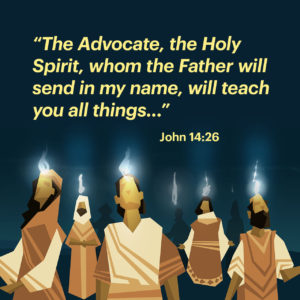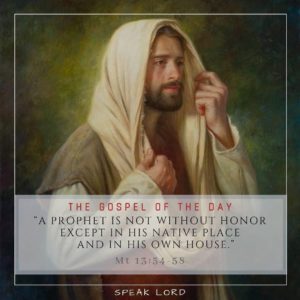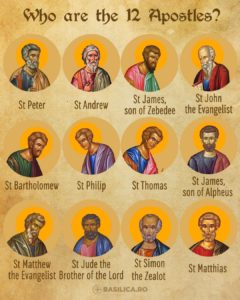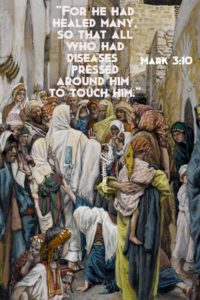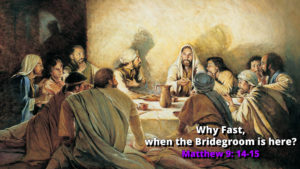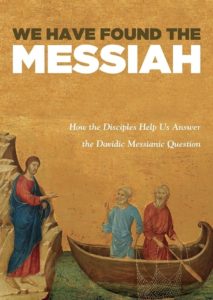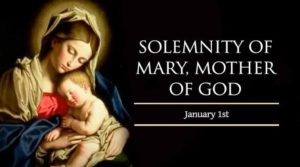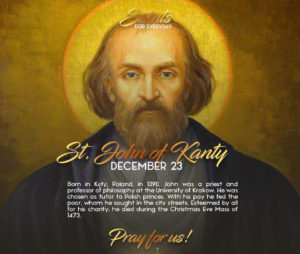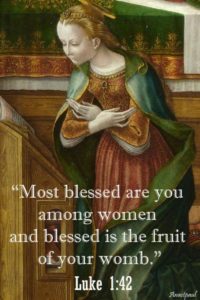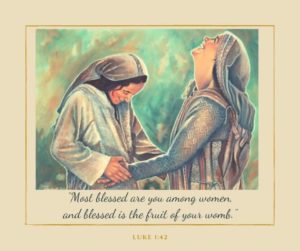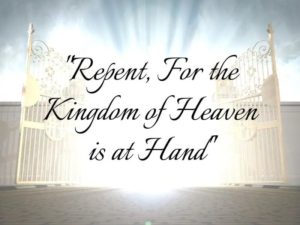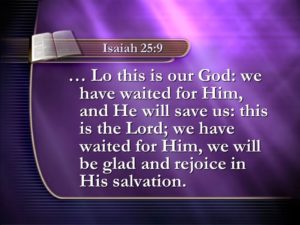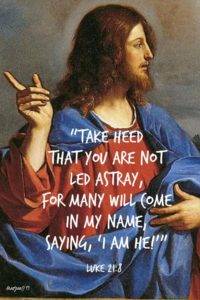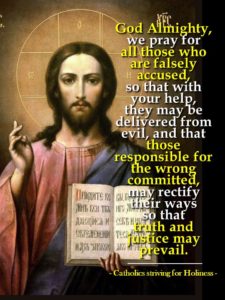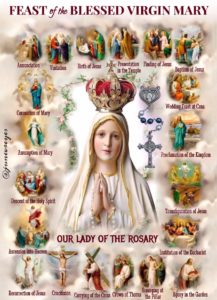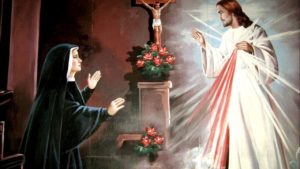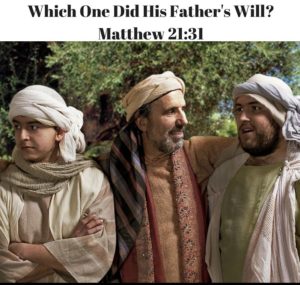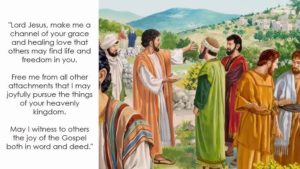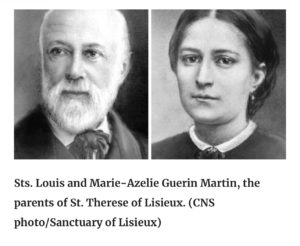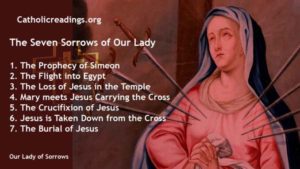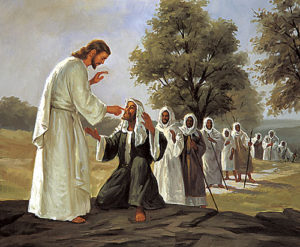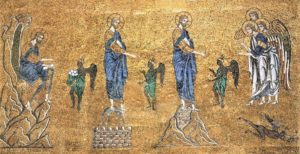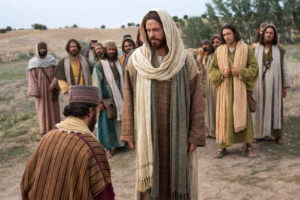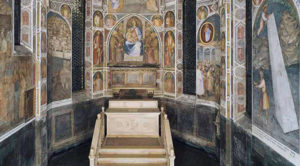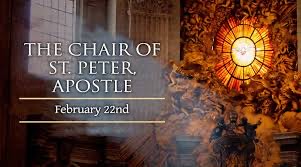FR SHOWRI DAILY REFLECTIONS
Scripture for today...
JESUS I TRUST IN YOU!
Scripture for today...
John 16:12-15
The Holy Spirit Will Guide You into All the Truth
Are you hungry for truth? Jesus proclaimed that he is the Truth, the Way, and the Life (John 14:6). Truth is not something we create nor is it our discovery. It is the gift of God who is the possessor and giver of all truth. Jesus tells his disciples that it is the role of the Holy Spirit to reveal what is true, right, and good. How can this be? Many skeptics of truth don’t want to believe in an absolute, objective, and unchanging Truth.
If truth is objective then it must be asserted to as trustworthy and right and be submitted to as authoritative and binding. Some fear the truth because they think it will inhibit their freedom to act, think, and judge as they wish. Jesus told his disciples that the truth will set you free(John 8:32). The truth liberates us from whatever is false, misleading, doubtful, or deceptive.
In God there is no lie or falsehood since he is utterly true, good, and just. Since he is the author and source of all that is true and good, then the closer we draw near to him in order to listen to his word and understand his mind and will for us, the more we will grow in the knowledge of God and of his great love, wisdom, and plan for us. The Spirit of truthJesus told his disciples that he would send them the Spirit of truth who will guide you into all the truth ..and declare to you the things that are to come (John 16:13).
Jesus knew that his disciples could not fully understand on their own everything he had taught and revealed to them while he was physically present with them. He knew that they would need the ongoing guidance and help of the Holy Spirit after he returned to his Father in heaven.
That is why he assured them that the Holy Spirit would take what he had spoken to them and guide them into a fuller understanding of God’s wisdom, power, and glory he wished to share with them so they could live in the joy and freedom of his love and truth. Augustine of Hippo (354-430 AD) explains the progressive work of the Spirit in guiding the disciples of Jesus in all the truth:
“Accordingly, when he says, ‘He will teach you all truth’ or ‘will guide you into all truth,’ I do not think the fulfillment is possible in anyone’s mind in this present life. For who is there, while living in this corruptible and soul-oppressing body (Wisdom 9:15), that can know all truth when even the apostle says, ‘We know in part’?
But it is effected by the Holy Spirit, of whom we have now received the promise (2 Corinthians 1:21), that we shall attain also to the actual fullness of knowledge that the same apostle references when he says, ‘But then face to face’ and ‘Now I know in part, but then shall I know even as also I am known’ (1 Corinthians 13:12).
He is not talking about something he knows fully in this life but about something that would still be in the future when he would attain that perfection. This is what the Lord promised us through the love of the Spirit, when he said, ‘He will teach you all truth’ or ‘will guide you unto all truth.'” (TRACTATES ON THE GOSPEL OF JOHN 96.4)
On the day of Pentecost after the Holy Spirit was poured out upon the first disciples of Jesus, the apostles boldly began to carry out the mission Jesus had entrusted to them – to proclaim the truth of the Gospel and to make disciples [followers of Jesus] of all nations, baptizing them in the name of the Father and of the Son and of the Holy Spirit, teaching them to observe all that I have commanded you, and behold, I am with you always, to the close of the age (Matthew 28:19-20).The Holy Spirit is our Teacher and HelperToday, through the guidance of the Holy Spirit, we, too, proclaim the same ancient faith which the apostles taught – that Jesus died, and was buried, and rose again on the third day, and will come again to judge, raise the dead, and give everlasting life (from the Apostles Creed). We not only share the same faith which was given to the apostles, we also have the same Holy Spirit who raised Jesus from the dead.
The Lord Jesus gives each of us his Holy Spirit as our divine Teacher and Helper that we may grow in the knowledge, wisdom, and strength of God. Do you listen attentively to God’s word and allow his Holy Spirit to give you understanding of God’s truth and plan for your life?
🐣🐣🙏🏻Prayer🙏🏻🐣🐣
“Lord Jesus, fill me with your Holy Spirit and guide me in your way of life, truth, and goodness. Free me from ignorance of your truth, and from deception and moral blindness caused by sinful pride and the refusal to believe and obey your word of truth. May I love you with all of my heart, mind, and strength, and seek to please you in all things.” Amen
Saint Peter of Tarentaise
1102 – 1174
There are two men named Saint Peter of Tarentaise who lived one century apart. The man we honor today is the elder Peter, born in France in the early part of the 12th century. The other man with the same name became Pope Innocent the Fifth.
The Peter we’re focusing on today became a Cistercian monk and eventually served as abbot. In 1142, he was named archbishop of Tarentaise, replacing a bishop who had been deposed because of corruption.
Peter tackled his new assignment with vigor. He brought reform into his diocese, replaced lax clergy, and reached out to the poor. He visited all parts of his mountainous diocese on a regular basis.
After about a decade as bishop, Peter “disappeared” for a year and lived quietly as a lay brother at an abbey in Switzerland. When he was found out, the reluctant bishop was persuaded to return to his post.
He again focused many of his energies on the poor.
Peter died in 1174 on his way home from an unsuccessful papal assignment to reconcile the kings of France and England. His liturgical feast is celebrated on September 14.
Reflection
We probably know a lot of people who would welcome the chance to receive some honor or honorary position. They relish the thought of the glamour and glory. But saints like Peter of Tarentaise remind us that humility and the avoidance of glory is the way of the Gospel.
54 Days Novena to Holy Rosary
51st Day
Sign of the Cross
Hail Mary
Petition Prayer (first 27 days)
Hail, Queen of the Most Holy Rosary, my Mother Mary, hail! At thy feet, I humbly kneel to offer thee
a Crown of Roses, snow-white buds to remind thee of thy joys. Each bud recalling to thee a holy
mystery. Each ten bound together with my petition for a particular grace.
O Holy Queen, dispenser of God’s graces, and Mother of all who invoke thee! Thou canst not look
upon my gift and fail to see its binding. As thou receivest my gift, so wilt thou receive my petition.
From thy bounty thou wilt give me the favor I so earnestly and trustingly seek. I despair of nothing
that I ask of thee. Show thyself my Mother!
Thanksgiving Prayer (final 27 days)
Hail, Queen of the Most Holy Rosary, my Mother Mary, hail! At thy feet, I gratefully kneel to offer
thee a Crown of Roses, snow-white buds to remind thee of thy joys. Each bud recalling to thee a holy
mystery. Each ten bound together with my petition for a particular grace.
O Holy Queen, dispenser of God’s graces, and Mother of all who invoke thee! Thou canst not look
upon my gift and fail to see its binding. As thou receivest my gift, so wilt thou receive my thanksgiving. From thy bounty thou hast given me the favor I so earnestly and trustingly sought. I
despaired not of what I asked of thee. Thou hast truly shown thyself my Mother.
The Apostles’ Creed
Our Father
3 Hail Marys
Glory Be
The Glorious Mysteries Continued
– The Resurrection of Jesus
– The Ascension of Jesus
– The Descent of the Holy Spirit
– The Assumption of Mary
– The Coronation of the Blessed Mother
Pray after every decade:
I bind these blood-red roses with a petition for the virtue of patience in adversity and humbly lay
this bouquet at thy feet.
Concluding Prayer
Hail, Holy Queen….Amen
In Petition (first 27 days)
Sweet Mother Mary, I offer thee this Spiritual Communion to bind my bouquets in a wreath to place
upon thy brow. O my Mother! Look with favor upon my gift, and in thy love obtain for me (specify request)
In Thanksgiving (final 27 days)
Sweet Mother Mary, I offer thee this spiritual communion to bind my bouquets in a wreath to place
upon thy brow in thanksgiving for (specify request) which thou in thy love hast obtained for me.
Hail Mary – Sign of the Cross
JESUS I TRUST IN YOU!
Scripture for today...
John 16:5-11
I Will Send the Counselor to You
Prayer
🟡The Life Story of the Saint🟡
Saint Rose Venerini
February 9, 1656 – May 7, 1728
JESUS I TRUST IN YOU!
Scripture for today...
JESUS I TRUST IN YOU!
Scripture for today...
John 21:1-14
You Have Found Favor with God
🟡The Life Story of the Saint🟡
Saint Julie Billiart
July 12, 1751 – April 8, 1816
Saint Julie Billiart is a Patron Saint of:
Educators/Teachers
The Story of the Annunciation of the Lord
JESUS I TRUST IN YOU!
Scripture for today...
John 20:19-31
Unless I see – I will not believe
❣️Divine Mercy Sunday❣️
JESUS I TRUST IN YOU!
Scripture for today...
Mark 16:9-15
Go and preach the Gospel to the whole creation
JESUS I TRUST IN YOU!
Scripture for today...
John 20:11-18
I have seen the Lord!
Tuesday in Easter Octave
The Life Story of the Saint
Saint Stanislaus
July 26, 1030 – Apr 11, 1079
JESUS I TRUST IN YOU!
Scripture for today...
Matthew 28:8-15
News of the resurrection
Humility in the Face of the Resurrection
The chief priests assembled with the elders and took counsel; then they gave a large sum of money to the soldiers, telling them, “You are to say, ‘His disciples came by night and stole him while we were asleep.’ And if this gets to the ears of the governor, we will satisfy him and keep you out of trouble.” Matthew 28:12–14
The Lord of all rose from the grave, conquering sin and death, making it possible for us all to share in His glorious Resurrection! Death had lost. Satan had lost. The corrupt religious leaders had lost. And all those who believed in Jesus now had their eternal hope renewed.
Sadly, though, what was the greatest victory ever known for humanity, a victory that opened the doors to eternal glory for all who believe, could not be accepted by the chief priests and elders of the people. They saw to His death, and, now that He had risen, they scrambled to do all they could to hide that truth.
Pride is hard to overcome. When a person professes they are right, when in fact they are wrong, and when they are then confronted with their error, the sin of pride will inevitably tempt them to further sin. This is what we see today in this passage from our Gospel.
The chief priests and elders were informed by the soldiers that when the women came to the tomb early in the morning, there was a great earthquake, and they saw an angel of the Lord descend from Heaven, roll back the stone, and sit on it.
When they saw this, “The guards were shaken with fear of him and became like dead men”. And after they heard the angel tell the women that Jesus had risen, the guards went off to tell the chief priests and elders.
After all the miracles and powerful preaching of Jesus, you would think that the chief priests and elders would have believed.
But they didn’t. And then, after hearing the testimony of these soldiers, you would think they would have fallen on their knees, repented of their hardness of hearts, and come to believe. But they didn’t. They doubled down in their sin and added sin upon sin.
Some forms of sin can more easily be admitted, especially sins of weakness. When one is weak and falls, it may not be always easy to overcome that sin in the future, but it is easier to acknowledge it as sin when it is caused by human weakness.
But a sin of weakness is much different than a sin of obstinate pride. Obstinate pride is not only hard to overcome, it’s hard to admit. It’s hard to admit our sin when it is based on our obstinacy and pride. As a result, this type of sin often leads to other sins such as ongoing deception, manipulation and anger.
This is illustrated by these chief priests and elders. But if you can humble yourself and admit your sin when it comes from your pride, that humility can have a powerful and transformative effect upon your life.
Reflect, today, upon these chief priests and elders of the people.
Try to ponder their hardness of heart and the sad situation they found themselves in as they attempted to cover up their error and sin. Resolve never to fall into this form of sin yourself. However, if this is a struggle for you, seek humility so that you can be freed of this heavy burden by the grace of the Resurrection of our Lord.
My resurrected Lord, You conquered sin and death and brought forth new life for all who believe in You.
Give me the grace, dear Jesus, to never allow my sin of pride to keep me from being open to the glorious and transforming action You desire to do in my life. Please give me the gift of humility so that I may always turn from my sin and turn to You.
Jesus, I trust in You.
The Life Story of the Saint
Saint Magdalene of Canossa’s
Mar 1, 1774 – Apr 10, 1835
Wealth and privilege did nothing to prevent today’s saint from following her calling to serve Christ in the poor. Nor did the protests of her relatives, concerned that such work was beneath her.
Born in northern Italy in 1774, Magdalene knew her mind—and spoke it. At age 15 she announced she wished to become a nun. After trying out her vocation with the cloistered Carmelites, she realized her desire was to serve the needy without restriction. For years she worked among the poor and sick in hospitals and in their homes, and also among delinquent and abandoned girls.
In her mid-20s, Magdalene began offering lodging to poor girls in her own home. In time she opened a school, which offered practical training and religious instruction. As other women joined her in the work, the new Congregation of the Canossian Daughters of Charity—or Canossian Sisters—emerged. Over time, houses were opened throughout Italy.
Members of the new religious congregation focused on the educational and spiritual needs of women. Magdalene also founded a smaller congregation for priests and brothers. Both groups continue to this day.
Magdalene died in 1835. Pope John Paul II canonized her in 1988.
Reflection
Let us pray to Saint Magdalene for the many young women who are caught up in the sex trafficking epidemic of our day.
❤️❤️The Divine Mercy Novena of Chaplets❤️❤️
Fourth Day:
Today bring to Me The PAGANS AND THOSE WHO DO NOT YET KNOW ME. I was thinking also of them during My bitter Passion, and their future zeal comforted My Heart. Immerse them in the ocean of My mercy.
Most compassionate Jesus, You are the Light of the whole world. Receive into the abode of Your Most Compassionate Heart the souls of those who do not believe in God and of those who as yet do not know You.
Let the rays of Your grace enlighten them that they, too, together with us, may extol Your wonderful mercy; and do not let them escape from the abode which is Your Most Compassionate Heart.Eternal Father, turn Your merciful gaze upon the souls of those who do not believe in You, and of those who as yet do not know You, but who are enclosed in the Most Compassionate Heart of Jesus. Draw them to the light of the Gospel. These souls do not know what great happiness it is to love You. Grant that they, too, may extol the generosity of Your mercy for endless ages.
Amen.
——-
Prayer
Asking for His Mercy
Through the passion and death of Jesus, an infinite ocean of mercy was made available for all of us. But God, who created us free, will not force anything on us, not even His mercy. He must wait for us to turn from our sinfulness and ask: “Ask and it will be given to you … for everyone who asks receives” (Mt 7:7, 8).
The Scriptures are filled with examples of how to trust in God and ask for His mercy: the psalms; the faith of Abraham and Moses who pleaded and “bargained” with God; the man who persuaded his friend to get up in the middle of the night to lend him some bread; the persistent widow who secured justice from the unjust judge; the Canaanite woman who “argued” with Jesus about her right to His mercy; and the witness of Mary, whose appeal for mercy at Cana led Jesus to perform His first public miracle, thus acknowledging that His time had indeed come.
Pope John Paul II echoes this scriptural message with a new urgency for our own times: “At no time… especially at a moment as critical as our own — can the Church forget the prayer that is a cry for the mercy of God… The Church has the right and the duty to appeal to the God of mercy ‘with loud cries’ ” (Rich in Mercy, 15).
To St. Faustina, Jesus revealed this same message once again. He gave her three new ways to ask for mercy on the strength of His passion: the Chaplet, the Novena, and prayer at three o’clock; and He taught her to transform her daily life into a continuous prayer for mercy.
Through her, He calls us all to ask for His mercy:
Souls that make an appeal to My mercy delight Me. To such souls I grant even more graces than they ask. I cannot punish even the greatest sinner if he makes an appeal to My compassion (Diary, 1146). Beg for mercy for the whole world (570). No soul that has called upon My mercy has ever been disappointed (1541).
Prayer to be Merciful to Others
This prayer gives us a true measure of our mercy, a mirror in which we observe ourselves as merciful Christs. We can make it our morning invocation and our evening examination of conscience.
O Most Holy Trinity! As many times as I breathe, as many times as my heart beats, as many times as my blood pulsates through my body, so many thousand times do I want to glorify Your mercy.
I want to be completely transformed into Your mercy and to be Your living reflection, O Lord. May the greatest of all divine attributes, that of Your unfathomable mercy, pass through my heart and soul to my neighbor.
Help me, O Lord, that my eyes may be merciful, so that I may never suspect or judge from appearances, but look for what is beautiful in my neighbors’ souls and come to their rescue.
Help me, that my ears may be merciful, so that I may give heed to my neighbors’ needs and not be indifferent to their pains and moanings.
Help me, O Lord, that my tongue may be merciful, so that I should never speak negatively of my neighbor, but have a word of comfort and forgiveness for all.
Help me, O Lord, that my hands may be merciful and filled with good deeds, so that I may do only good to my neighbors and take upon myself the more difficult and toilsome tasks.
Help me, that my feet may be merciful, so that I may hurry to assist my neighbor, overcoming my own fatigue and weariness. My true rest is in the service of my neighbor.
Help me, O Lord, that my heart may be merciful so that I myself may feel all the sufferings of my neighbor. I will refuse my heart to no one. I will be sincere even with those who, I know, will abuse my kindness. And I will lock myself up in the most merciful Heart of Jesus. I will bear my own suffering in silence. May Your mercy, O Lord, rest upon me.
You Yourself command me to exercise the three degrees of mercy.
The first: the act of mercy, of whatever kind.
The second: the word of mercy — if I cannot carry out a work of mercy, I will assist by my words.
The third: prayer — if I cannot show mercy by deeds or words, I can always do so by prayer.
My prayer reaches out even there where I cannot reach out physically.
O my Jesus, transform me into Yourself, for You can do all things.
Blessings from
Fr Showri R Narra
JESUS I TRUST IN YOU!
Scripture for today...
Matthew 28:1-10
Why do you seek the living among the dead?
JESUS I TRUST IN YOU!
Scripture for today...
Matthew 28:1-10
Why do you seek the living among the dead?
JESUS I TRUST IN YOU!
Scripture for today...
Mark 3:22-30
Jesus Frees Us from Satan’s Power
JESUS I TRUST IN YOU!
Scripture for today...
Mark 4:21-25
Living in the Light of God’s Truth and Wisdom
: What does the image of light and a lamp tell us about God’s kingdom? Lamps in the ancient world served a vital function, much like they do today. They enable people to see and work in the dark and to avoid stumbling or losing their way. The Jews also understood “light” as an expression of the inner beauty, truth, and goodness of God.
Many passages from the Old Testament Scriptures describe how God’s light guides and helps us grow in our knowledge of him and his truth and wisdom for our lives. In his light we see light ( Psalm 36:9). His word is a lamp that guides our steps (Psalm 119:105). We are light-bearers of God’s truth and loveThe truth cannot remain hidden, or suppressed, or destroyed. We might refuse to face the truth or try to suppress it, or destroy it, but the truth will always prevail because it is indestructible.
That is why God wants us to know the truth and to stake our lives on it. God’s grace (his indwelling presence and power at work in us) and his word of truth enable us to hear, believe, and obey him without fear or reservation.
Just as natural light prevails over the darkness around us and enable us to see clearly, so the light of Christ shines in the hearts of all who hear and believe his word. God wants to fill us with his Holy Spirit so that we may shine brightly with the radiance of his truth, love, and goodness.
Jesus called John the Baptist “a burning and shining lamp” (John 5:35) because he bore witness to God’s word and pointed others to Jesus, the true Light and Savior of the world. Our call and mission, like John the Baptist, is to be light-bearers of Jesus Christ so that many others may hear and understand the truth of the Gospel (the good news of Jesus Christ) and be set free from the blindness of sin, ignorance, and deception.
Living in the light brings true freedom and joyJesus remarks that nothing can remain hidden or secret. We can try to hide things from others, from ourselves, and from God.
How tempting to shut our eyes from the consequences of our sinful ways or bad habits, even when we know what those consequences are. And how tempting to hide them from others and even from God. But, nonetheless, everything is known to God who sees all. There is great freedom and joy for those who live in God’s light and who seek his truth and goodness.
Those who listen to God and heed his voice will receive more from him. And they will not lack what they need to live as Christ’s disciples. And they will shine as lights that show the wisdom and truth of God’s word. Do you know the joy and freedom of living in God’s light and truth?
Prayer
“Lord Jesus, you guide me by the light of your saving truth. Fill my heart and mind with your light and truth and free me from the blindness of sin, ignorance, and deception that I may see your ways clearly and understand your will for my life. May I radiate your light and truth to others in word and deed.”
Amen
JESUS I TRUST IN YOU!
Scripture for today...
Mark 3:22-30
Jesus Frees Us from Satan’s Power
JESUS I TRUST IN YOU!
Scripture for today...
Mark 1:14-20
The Kingdom of God Is at Hand
JESUS I TRUST IN YOU!
Scripture for today...
Mark 3:13-19
People Were Saying of Jesus, ‘He Is beside Himself’
JESUS I TRUST IN YOU!
Scripture for today...
Mark 3:13-19
People Were Saying of Jesus, ‘He Is beside Himself’
JESUS I TRUST IN YOU!
Scripture for today...
Mark 3:13-19
People Were Saying of Jesus, ‘He Is beside Himself’
JESUS I TRUST IN YOU!
Scripture for today...
Mark 3:13-19
Jesus Appointed Twelve to Be with Him
JESUS I TRUST IN YOU!
Scripture for today...
Mark 3:7-12
All Pressed upon Jesus to Touch Him
JESUS I TRUST IN YOU!
Scripture for today...
Mark 3:1-6
Is It Lawful… to Save Life or to Kill?
Solemnity of Mary, Mother of God—The Octave Day of the Nativity of the Lord
JESUS I TRUST IN YOU!
Scripture for today...
Mark 2:18-22
Fasting or Feasting?
Solemnity of Mary, Mother of God—The Octave Day of the Nativity of the Lord
JESUS I TRUST IN YOU!
Scripture for today...
Solemnity of Mary, Mother of God—The Octave Day of the Nativity of the Lord
JESUS I TRUST IN YOU!
Scripture for today...
Luke 2:22-40 Christ Stands among You
Solemnity of Mary, Mother of God—The Octave Day of the Nativity of the Lord
JESUS I TRUST IN YOU!
Scripture for today...
Luke 2:22-40
He Was Called Jesus
Solemnity of Mary, Mother of God—The Octave Day of the Nativity of the Lord
JESUS I TRUST IN YOU!
Scripture for today...
Luke 1:57-66
What Then Will This Child Be?
Are you surprised to see the relatives of Zechariah and Elizabeth disagreeing over what to name their newborn child? Don’t we do the same thing? This child, however has been named from above! And Elizabeth is firm in her faith and determined to see that God be glorified through this child.
The name John means “the Lord is gracious.” In the birth of John the Baptist and in the birth of Jesus the Messiah we see the grace and favor of God breaking forth into a world broken by sin, corruption, and death – a world lost without hope. The Old Testament prophets foretold the return of the prophet Elijah (Malachi 3:1, and 4:5) who would announce the coming of the Messiah – the Savior and Ruler of the earth. John the Baptist fulfills the role of Elijah (Matthew 11:13-14). His miraculous birth shows the mercy and favor of God in preparing his people for the coming of its Savior, the Lord Jesus Christ.
When God acts to save us he graciously fills us with his Holy Spirit and makes our faith come “alive” to his promises. When we respond to his word with trust the Lord fills us with the joy of the Holy Spirit and renews our hope and gratitude for the mercy and gift of new life and salvation he gives us through Jesus Christ.
Do you make your life an offering of thanksgiving to God, along with your family and all that you have and hope to accomplish?
God wants to fill us with the joy of his saving presence all the days of our lives, from birth through death. Renew the offering of your life to God and give him thanks for his mercy and favor towards you.
Prayer
“Lord Jesus, you are gracious and forgiving towards us. Renew in me the gift of faith that I may believe your promises and obey your word.”
Amen
Saint John of Kanty’s
June 24, 1390 – Dec 24, 1473
John was a country lad who made good in the big city and the big university of Kraków, Poland. After brilliant studies he was ordained a priest and became a professor of theology. The inevitable opposition which saints encounter led to his being ousted by rivals and sent to be a parish priest at Olkusz.
An extremely humble man, he did his best, but his best was not to the liking of his parishioners. Besides, he was afraid of the responsibilities of his position. But in the end he won his people’s hearts. After some time he returned to Kraków and taught Scripture for the remainder of his life.
John was a serious man, and humble, but known to all the poor of Kraków for his kindness. His goods and his money were always at their disposal, and time and again they took advantage of him.
He kept only the money and clothes absolutely needed to support himself. He slept little, ate sparingly, and took no meat. He made a pilgrimage to Jerusalem, hoping to be martyred by the Turks.
Later John made four subsequent pilgrimages to Rome, carrying his luggage on his back. When he was warned to look after his health, he was quick to point out that, for all their austerity, the fathers of the desert lived remarkably long lives.
Reflection
John of Kanty is a typical saint: He was kind, humble, and generous, he suffered opposition and led an austere, penitential life.
Most Christians in an affluent society can understand all the ingredients except the last: Anything more than mild self-discipline seems reserved for athletes and ballet dancers. Christmas at least is a good time to reject self-indulgence.
Christmas Novena
Catholics in many cultures have prayed the Christmas Novena
from December 16-24 as part of their
Christmas preparation. Its focus is on our expectation of the coming of
Christ and on God’s faithfulness to his people throughout the
generations.
This novena is built around what we usually refer to as the
Great Antiphons of Advent, a series of scriptural titles addressed to
Christ, the newborn king and the titles given to Christ in Luke’s account
of the Annunciation. Together they seem to sum up our Advent longing
for Jesus Christ, our Savior.
All can pray this novena, either alone or as part of a family group. They
can also be added to our daily prayers to give them an Advent flavor.
Each day begin with lighting a candle or the candles on your Advent wreath. A favorite carol or hymn may be sung, such as “O Come, O Come Emmanuel”.
If prayed in a group,
invite one member to read the short scripture passage aloud, allowing time for reflection before all pray the short prayers that follow.
O Come, O Come Emmanuel,
And ransom captive Israel
That mourns in lonely exile here
Until the Son of God appear
Rejoice! Rejoice!
Emmanuel shall come to you, O Israel
O Come, O Come O Wisdom from on high.
Who orders all things mightily
To us the path of knowledge show
And teach us in her ways to go
Rejoice! Rejoice!
Emmanuel shall come to you, O Israel
December 23
Jesus, Son of the Most High
Leader: “He will be great and will be called the Son of the Most High and the Lord God will give him the throne of his father David and he will reign over the house of Jacob forever and
of his kingdom there will be no end” (Lk 1:32-33)
All: Jesus, Son of the Most High, your birth is the fulfillment of the promises made long ago: Come and empower us to be faithful to our baptismal promises.
All: “Glory to the Father….
JESUS I TRUST IN YOU!
Scripture for today...
Luke 1:39-45
Joyful Anticipation of the Messiah
Do you recognize the indwelling presence of the Lord Jesus in your life? Blessed are you if you see and recognize the Lord with the “eyes of faith”.
The word “blessed” [makarios in Greek] literally means “happiness” or “beatitude”. It describes a kind of joy which is serene and untouchable, self-contained, and independent from chance and changing circumstances of life. God gives us supernatural joy with hope in his promisesThere is a certain paradox for those “blessed” by the Lord. Mary was given the “blessedness” of being the mother of the Son of God.
That blessedness also would become a sword which pierced her heart as her Son died upon the cross. Anselm, a great teacher and Archbishop of Canterbury (1033-1109), spoke these words in a homily: “Without God’s Son nothing could exist; without Mary’s son, nothing could be redeemed.”
To be chosen by God is an awesome privilege and responsibility. Mary received both a crown of joy and a cross of sorrow. Her joy was not diminished by her sorrow because it was fueled by her faith, hope, and trust in God and his promises. Jesus promised his disciples that “no one will take your joy from you” (John 16:22). The Lord gives us a supernatural joy which enables us to bear any sorrow or pain and which neither life nor death can take away. Do you know the joy of a life given over to God in faith and trust? They were filled with the Holy SpiritWhat is the significance of Mary’s visit to her cousin Elizabeth before the birth of Jesus? When Elizabeth greeted Mary and recognized the Messiah in Mary’s womb they were filled with the Holy Spirit and with a joyful anticipation of the fulfillment of God’s promise to give a Savior.
What a marvelous wonder for God to fill not only Elizabeth’s heart with his Holy Spirit but the child in her womb as well. John the Baptist, even before the birth of the Messiah, pointed to his coming and leaped for joy in the womb of his mother as the Holy Spirit revealed to him the presence of the King to be born. The Lord wants to fill each of us with his Holy SpiritThe Holy Spirit is God’s gift to us to enable us to know and experience the indwelling presence of God and the power of his kingdom. The Holy Spirit is the way in which God reigns within each of us. Do you live in the joy and knowledge of God’s indwelling presence with you through his Holy Spirit?
Prayer
“Lord Jesus, fill me with your Holy Spirit and give me joy in seeking you more earnestly. Increase my faith in all your promises, my hope in the joy of heaven, and my love for You as my All.”
Amen
Saint Peter Canisius
May 8, 1521 – Dec 21, 1597
The energetic life of Peter Canisius should demolish any stereotypes we may have of the life of a saint as dull or routine.
Peter lived his 76 years at a pace which must be considered heroic, even in our time of rapid change. A man blessed with many talents, Peter is an excellent example of the scriptural man who develops his talents for the sake of the Lord’s work.
Peter was one of the most important figures in the Catholic Reformation in Germany.
He played such a key role that he has often been called the “second apostle of Germany,” in that his life parallels the earlier work of Boniface Although Peter once accused himself of idleness in his youth, he could not have been idle too long, for at the age of 19 he received a master’s degree from the university at Cologne.
Soon afterwards he met Peter Faber, the first disciple of Ignatius of Loyola, who influenced Peter so much that he joined the recently formed Society of Jesus.
At this early age Peter had already taken up a practice he continued throughout his life—a process of study, reflection, prayer, and writing. After his ordination in 1546, he became widely known for his editions of the writings of St. Cyril of Alexandria and St. Leo the Great. Besides this reflective literary bent, Peter had a zeal for the apostolate.
He could often be found visiting the sick or imprisoned, even when his assigned duties in other areas were more than enough to keep most people fully occupied.
In 1547, Peter attended several sessions of the Council of Trent, whose decrees he was later assigned to implement.
After a brief teaching assignment at the Jesuit college at Messina, Peter was entrusted with the mission to Germany—from that point on his life’s work. He taught in several universities and was instrumental in establishing many colleges and seminaries. He wrote a catechism that explained the Catholic faith in a way that common people could understand—a great need of that age.
Renowned as a popular preacher, Peter packed churches with those eager to hear his eloquent proclamation of the gospel. He had great diplomatic ability, often serving as a reconciler between disputing factions. In his letters—filling eight volumes—one finds words of wisdom and counsel to people in all walks of life.
At times he wrote unprecedented letters of criticism to leaders of the Church—yet always in the context of a loving, sympathetic concern.
At 70, Peter suffered a paralytic seizure, but he continued to preach and write with the aid of a secretary, until his death in his hometown of Nijmegen, Netherlands, on December 21, 1597.
Reflection
Peter’s untiring efforts are an apt example for those involved in the renewal of the Church or the growth of moral consciousness in business or government. He is regarded as one of the creators of the Catholic press, and can easily be a model for the Christian author or journalist. Teachers can see in his life a passion for the transmission of truth.
Whether we have much to give, as Peter Canisius did, or whether we have only a little to give, as did the poor widow in the Gospel of Luke (see Luke 21:1–4), the important thing is to give our all. It is in this way that Peter is so exemplary for Christians in an age of rapid change when we are called to be in the world but not of the world.
Saint Peter Canisius is a Patron Saint of: Germany
Christmas Novena
Catholics in many cultures have prayed the Christmas Novena
from December 16-24 as part of their
Christmas preparation. Its focus is on our expectation of the coming of
Christ and on God’s faithfulness to his people throughout the
generations.
This novena is built around what we usually refer to as the
Great Antiphons of Advent, a series of scriptural titles addressed to
Christ, the newborn king and the titles given to Christ in Luke’s account
of the Annunciation. Together they seem to sum up our Advent longing
for Jesus Christ, our Savior.
All can pray this novena, either alone or as part of a family group. They
can also be added to our daily prayers to give them an Advent flavor.
Each day begin with lighting a candle or the candles on your Advent wreath. A favorite carol or hymn may be sung, such as “O Come, O Come Emmanuel”.
If prayed in a group,
invite one member to read the short scripture passage aloud, allowing time for reflection before all pray the short prayers that follow.
O Come, O Come Emmanuel,
And ransom captive Israel
That mourns in lonely exile here
Until the Son of God appear
Rejoice! Rejoice!
Emmanuel shall come to you, O Israel
O Come, O Come O Wisdom from on high.
Who orders all things mightily
To us the path of knowledge show
And teach us in her ways to go
Rejoice! Rejoice!
Emmanuel shall come to you, O Israel
December 21
Jesus, King of the Gentiles
Leader: “So then you are no longer strangers and sojourners, but you are fellow citizens with the saints and members of the household of God, built upon the foundation of the apostles and prophets, Christ Jesus himself being the cornerstone” (Eph. 2:19-20
All: O King of Gentiles, the cornerstone that makes all believers one in the household of God: Come and deliver your sons and daughters, whom you have formed from the dust of the earth into the eternal image of God
All: “Glory to the Father …..
JESUS I TRUST IN YOU!
Scripture for today...
Luke 1:39-45
Joyful Anticipation of the Messiah
Prayer
Bringing Christ to Others
Mary set out in those days and traveled to the hill country in haste to a town of Judah, where she entered the house of Zechariah and greeted Elizabeth. Luke 1:39–40
We are presented today with the glorious story of the Visitation.
When Mary was about two months pregnant, she traveled to be with her cousin Elizabeth who was to give birth within a month. Though much could be said about this as an act of familial love given from Mary to Elizabeth, the central focus immediately becomes the precious Child within the womb of Mary.
Imagine the scene. Mary had just traveled about 100 miles. She was most likely exhausted. As she finally arrived, she would have been relieved and joyful at the completion of her journey.
But Elizabeth says something quite inspiring at that moment, which elevates the joy of all present, including the joy of Mother Mary. Elizabeth says, “For at the moment the sound of your greeting reached my ears, the infant in my womb leaped for joy” (Luke 1:44)
Again, imagine the scene. It was this tiny child within Elizabeth’s womb, John the Baptist, who immediately perceived the presence of the Lord and leaped for joy. And it was Elizabeth who immediately perceived the joy in her child living within her womb.
As Elizabeth expressed this to Mary, who was already joyful at completing her journey, Mary was suddenly all the more overjoyed at the realization that she had brought to Elizabeth and John the Savior of the World living within her womb.
This story should teach us much about what is most important in life.
Yes, it’s important to reach out in love to others. It’s important to care for our relatives and friends when they need us the most. It’s important to be sacrificial with our time and energies for the good of others, because through these acts of humble service, we certainly share the love of God.
But most importantly, we must bring Christ Jesus Himself to others. Elizabeth was not filled with joy first and foremost because Mary was there to help her in her pregnancy. Rather, she was overjoyed primarily because Mary brought her Jesus, her Lord, living within her womb.
Though we do not bring Christ in the same way as our Blessed Mother did, we nonetheless must make this our central mission in life. First, we must foster a love and devotion to our Lord so deep that He truly dwells within us. Then, we must bring Him who dwells within us to others. This is unquestionably the greatest act of charity we will ever be able to offer to another.
Reflect, today, not only upon your mission to invite your Lord to dwell within you as our Blessed Mother did but also upon your Christian duty to then bring Him who dwells within you to others. Do others encounter Christ living within you with joy?
Do they sense His presence in your life and respond with gratitude? Regardless of their response, commit yourself to this holy calling of bringing Christ to others as an act of the deepest love. Lord, please do dwell within me. Come and transform me by Your holy presence.
As You do come to me, help me to then become a missionary of Your divine presence by bringing You to others so that they may encounter the joy of Your presence. Make me a pure instrument, dear Lord, and use me to inspire all whom I encounter every day. Jesus, I trust in You.
JESUS I TRUST IN YOU!
Scripture for today...
Luke 1:26-38
Hail, O Favored One, the Lord Is with You!
Prayer
Running to the Will of God
And the angel said to her in reply, “The Holy Spirit will come upon you, and the power of the Most High will overshadow you. Therefore the child to be born will be called holy, the Son of God.” Luke 1:35
Try to set aside all that you know about Jesus and simply ponder these words of the Archangel Gabriel as if you were to hear them as our Blessed Mother did for the very first time. She was told she would have a child, even though she had not had relations with a man.
She was told that this pregnancy would happen by the overshadowing of the Holy Spirit. And she was told that her Child would be the Son of God. What was Mary to think about these amazing revelations given to her by this most glorious archangel?
The ordinary person would most likely conclude that this was some sort of hallucination and that what they were seeing and hearing was the result of some temporary psychological disorder. Perhaps she was dreaming? Or perhaps it was something she unknowingly ingested that has led to this experience?
But our Blessed Mother was no ordinary person, and she had no ordinary mind. Her mind was perfectly sharp on account of her immaculate nature. And her mind was continually “full of grace,” as Gabriel said in his greeting to her. She knew God’s voice, and she knew that this archangel was speaking to her a message from on high.
As a result, she listened, accepted, believed and consented.
We can also conclude that Mary did even more than merely consent. The love she had for God and His will would have been so strong that she would have been filled with an immediate and burning desire to fulfill this command of the archangel.
She would have been filled with a holy desire to do all she could to bring about this miraculous calling she had received. And this calling would have immediately become the central purpose of her life.
Though none of us has been given the unique and glorious vocation that was given to our Blessed Mother, we are all most certainly given a mission by God. Sometimes we listen and consider it. Sometimes we choose to embrace it. But the ideal is that we imitate our Blessed Mother and run to it.
We must not only be open. We must not only submit. We must also allow every desire within our soul, every passion we have and every longing within us to work toward the accomplishment of God’s will.
What is it that God is calling you to do in life? What is your purpose? What is your mission? If you struggle in answering these questions, then perhaps start by praying for the deep and all-consuming holy desire to accomplish that which God has chosen for you. If all you desire is the fulfillment of the will of God, then when God reveals His will to you, you will more easily and more quickly be able to accomplish it.
Reflect, today, upon the unique mission that God has given to you. Whatever He has called you to do with your life is a calling given only to you. Do not run from it. Do not reluctantly accept it. Instead, run to it with your whole being and allow God to do great things through you.
Most holy Lord, I know that You have a perfect plan for my life. I know that You have given me a mission that has not been given to anyone else. Please flood my soul with a holy desire to fully accomplish Your will and to do so with the most fervent commitment and strength. I, too, am a servant of You, O Lord; may it be done to me according to Your will. Mother Mary, pray for us. Jesus, I trust in You.
JESUS I TRUST IN YOU!
Scripture for today...
Luke 1:5-25
Many Will Rejoice at His Birth
Do you believe that God will fulfill all his promises just as he said? Advent is a time to renew our hope and confidence in God’s faithfulness to the covenant he made with his people.
In preparing the way for a Savior, we see the wondrous miracle of two barren couples who conceive and bear sons – Samson in the Old Testament (Judges 13) and John the Baptist in the New Testament (Luke 1:5ff) – who are called by God to bring hope and deliverance at a time of spiritual darkness and difficulty for the people of God. A blessing beyond expectationsZechariah was a godly man who was tuned to God’s voice. He was born into a priestly family and it was his privilege to be chosen to enter the inner court of the temple to offer sacrifice to God. Luke records that the people wondered at Zechariah’s delay and were amazed that he was speechless when he withdrew from the inner sanctuary.
They rightly perceived that he had a special encounter with God. God’s angelic messenger greeted Zechariah with a blessing beyond his expectations. “Your prayer is heard! You will have a son! And his mission will be great for all of Israel.”
Now that seemed like a lot for Zechariah to take in all at once. Could God really do a miracle for his barren wife, Elizabeth? The angel somewhat wisely put Zechariah in his place before God’s mighty action. He became speechless until the day the infant was dedicated to the Lord and given the name, John.
When God draws us into his presence, he wants us to be still and quiet before him so we can listen to his voice as he speaks to our hearts and reveals his mind to us. Do you listen attentively to the Lord and do you ponder his word in your heart with trust and confidence? The Lord is graciousIn the annunciation of the birth of John the Baptist, the angel explains to Zechariah the role his son is to play in preparing the way for the Messiah. John will be great in the sight of God. He will live as a Nazarite (see Numbers 6) – a person set apart for the Lord.
He will be filled with the Holy Spirit even within his mother’s womb. And he shall be sent to the people of God, in the spirit and power of Elijah, to turn the hearts of fathers and children to God and one another, by turning the “disobedient to the wisdom of the just.”
The name John means “the Lord is gracious”. When God acts to save us he graciously fills us with his Holy Spirit and makes our faith “alive” to his promises. Do you pray that “the hearts of parents and children may be turned to God and one another”?
Prayer
“Lord Jesus, you bring hope and restoration to your people. Restore and strengthen Christian family life today. Help me to love and serve my family. May your love rule in all my relationships and remove any barriers to peace and harmony.”
Amen
Faith or Doubt?
“I am Gabriel, who stand before God. I was sent to speak to you and to announce to you this good news. But now you will be speechless and unable to talk until the day these things take place, because you did not believe my words, which will be fulfilled at their proper time.” Luke 1:19–20
Imagine if the Archangel Gabriel appeared to you. What would that have been like?
This particular Archangel stands before the incomprehensible beauty and splendor of the Most Holy Trinity and brings forth messages of the greatest importance. Gabriel is God’s most notable messenger. Take a moment to ponder what such a glorious apparition would have been like.
In the passage above, this glorious Archangel appears to Zechariah as he is fulfilling his priestly duty to burn incense before the Lord within the Holy of Holies. As Zechariah enters the sanctuary while all the people remain outside praying, he suddenly has a vision of the Archangel telling him that his wife Elizabeth will have a child, even though she is advanced in years.
But even though Zechariah hears this message from Gabriel, the Archangel who stands before God, he doubts what he is being told.
Would you have believed the Archangel Gabriel if you were Zechariah? Or would you have doubted?
Though there may not be a way to know the answer to that question, it’s helpful to ponder the humble truth that you very well may have doubted. It takes true humility to admit that possibility. Like Zechariah, we are all weak and sinful. We lack the perfect faith that our Blessed Mother had.
And if you can humbly admit this, then you are in a great position to overcome the weakness of faith you struggle with. Zechariah suffered much for his lack of faith, but that suffering led to a renewal of faith when he named his child John in obedience to the Archangel.
Reflect, today, upon how well you listen to all that God says to you. Do you listen, believe and obey? Or do you question and doubt God’s voice. Know that God speaks to you each and every day. Admit the ways that you lack perfect faith and allow that act of humble acknowledgment to strengthen you where you need help the most.
Lord, I know I lack the depth of perfect faith that I so deeply desire to have. I know that You speak to me day and night, and I fail to listen and obey. As I humble myself before You and confess my weakness of faith, strengthen me to respond more fully each day to all that You say to me. Jesus, I trust in You.
The Life Story of the Saint
Blessed Urban V
1310 – Dec 19, 1370
In 1362, the man elected pope declined the office. When the cardinals could not find another person among them for that important office, they turned to a relative stranger: the holy person we honor today.
The new Pope Urban V proved a wise choice. A Benedictine monk and canon lawyer, he was deeply spiritual and brilliant. He lived simply and modestly, which did not always earn him friends among clergymen who had become used to comfort and privilege. Still, he pressed for reform, and saw to the restoration of churches and monasteries.
Except for a brief period he spent most of his eight years as pope living away from Rome at Avignon, seat of the papacy from 1309, until shortly after his death. Urban came close, but was not able to achieve one of his biggest goals—reuniting the Eastern and Western churches.
As pope, Urban continued to follow the Benedictine Rule. Shortly before his death in 1370, he asked to be moved from the papal palace to the nearby home of his brother, so he could say goodbye to the ordinary people he had so often helped.
Reflection
Simplicity in the midst of power and grandeur seems to define this saint, as he reluctantly accepted the papacy, but remained at heart a Benedictine monk. Surroundings need not negatively influence a person.
JESUS I TRUST IN YOU!
Scripture for today...
Matthew 1:18-25
He Will Save His People from Their Sins
Do you hold on to the promises of God at all times, especially when you are faced with uncertainty or adversity? The prophets Jeremiah and Isaiah spoke words of hope in a hopeless situation for Israel. The Davidic dynasty was corrupt and unfit for a Messianic King.
Apostates like King Ahaz (2 Kings 16) and weaklings like Zedekiah (Jeremiah 38) occupied the throne of David. How could God be faithful to his promise to raise up a righteous King who would rule forever over the house of David?
The prophets trusted that God could somehow “raise up a righteous shoot” from the stump of Jesse (Isaiah 2:11). Like the prophets we are called “in hope to believe against hope”
(Romans 4:18) that God can and will fulfill all his promises. Mary was found to be with child of the Holy SpiritMary had to face an enormous challenge to her faith and trust in God and to the faith of her family and Joseph, the man she chose to marry.
She was asked to assume a burden of tremendous responsibility. It had never been heard of before that a child could be born without a natural father. Mary was asked to accept this miraculous exception to the laws of nature.
That required faith and trust in God and in his promises. Second, Mary was not yet married. Pregnancy outside of wedlock was not tolerated in those days. Mary was only espoused to Joseph, and such an engagement had to last for a whole year.
She was asked to assume a great risk. She could have been rejected by Joseph, by her family, by all her own people. Mary knew that Joseph and her family would not understand without revelation from God. She nonetheless believed and trusted in God’s promises. Joseph believed the angel’s message “that which is conceived in her is of the Holy Spirit”
Joseph, a just and God-fearing man, did not wish to embarrass or punish his espoused wife, Mary when he discovered that she was pregnant. To all appearances she had broken their solemn pledge to be faithful and chaste to one another. Joseph, no doubt took this troubling matter to God in prayer. He was not hasty to judge or to react with hurt and anger.
God rewarded him not only with guidance and consolation, but with the divine assurance that he had indeed called Joseph to be the husband of Mary and to assume a mission that would require the utmost faith, confidence, and trust in Almighty God. Joseph believed in the divine message to take Mary as his wife and to accept the child in her womb as the promised Messiah. A model of faith for usLike Mary, Joseph is a model of faith for us. He is a faithful witness and servant of God’s unfolding plan of redemption. Are you ready to believe in the promises of God, even when faced with perplexing circumstances and what seems like insurmountable problems?
God has not left us alone, but has brought us his only begotten Son, our Lord and Savior Jesus Christ. Let us celebrate Christmas, the feast of the Incarnation, with joyful hearts and let us renew our faith and hope in God and in his redeeming work.
Prayer
“Lord Jesus, you came to save us from sin and the power of death. May I always rejoice in your salvation and trust in your divine plan for my life.”
Amen
A Mysterious Pregnancy and Apparent Scandal
This is how the birth of Jesus Christ came about. When his mother Mary was betrothed to Joseph, but before they lived together, she was found with child through the Holy Spirit. Joseph her husband, since he was a righteous man, yet unwilling to expose her to shame, decided to divorce her quietly. Matthew 1:18–19
Mary’s pregnancy was truly mysterious. In fact, it was so mysterious that even Saint Joseph initially couldn’t accept it. But, to Joseph’s defense, who could accept such a thing? He was faced with what was a most confusing situation.
The woman to whom he was engaged was suddenly with child, and Joseph knew he was not the father. But he also knew that Mary was a holy and pure woman. So, naturally speaking, it makes sense that this situation simply did not make immediate sense. But that’s the key. “Naturally speaking” this did not make immediate sense.
The only way to understand the situation of Mary’s sudden pregnancy was through supernatural means. Thus, an angel of the Lord appeared to Joseph in a dream, and that dream was all he needed to accept this mysterious pregnancy in faith.
It’s amazing to consider the fact that the greatest event to ever take place in human history happened under a cloud of apparent scandal and confusion. The angel revealed the deep spiritual truth to Joseph secretly, in a dream. And though Joseph may have shared his dream with others, it’s most likely the case that many people still assumed the worst.
Most would have presumed that Mary was pregnant either by Joseph or by someone else. The idea that this conception was the working of the Holy Spirit would have been a truth beyond what their friends and relatives could ever comprehend.
But this presents us with a great lesson about judgment and the action of God. There are countless examples in life when God and His perfect will lead to judgment, apparent scandal and confusion. Take, for example, any martyr of old. We now look at the many acts of martyrdom in a heroic way.
But when the martyrdom actually happened, many would have been deeply saddened, angered, scandalized and confused. Many, at the time of a loved one being martyred for the faith, would be tempted to question why God permitted this.
The holy act of forgiving another could also lead some to a form of “scandal” in life.
Take, for example, the crucifixion of Jesus. From the Cross, He cried out, “Father, forgive them…” Were not many of His followers confused and scandalized? Why didn’t Jesus defend Himself? How could the promised Messiah have been found guilty by the authorities and killed? Why did God allow this?
Reflect, today, upon the mystery of God’s actions in life. Are there things in your own life that are hard to accept, to embrace, or to understand? Know that you are not alone in this.
Even Saint Joseph experienced this. Prayerfully commit yourself to a deeper faith in God’s wisdom in the face of any mystery with which you struggle. And know that this faith will help you to live more fully in accord with the glorious wisdom of God.
Lord, I turn to You with the deepest mysteries of my life. Help me to face them all with confidence and courage. Give me Your mind and Your wisdom so that I can walk each day in faith, trusting in Your perfect plan, even w
hen that plan appears mysterious. Jesus, I trust in You.
JESUS I TRUST IN YOU!
Scripture for today...
Mark 1:1-8
“I am sending my messenger…to prepare the way of the Lord.”
Homecoming is the central theme of the Scripture readings for the Second Sunday of Advent. All three readings focus on the absolute necessity of our getting ready for Christ’s “Homecoming” into our hearts and lives by true repentance, reparation, prayer and the renewal of our lives.
They also remind us that the past coming of Jesus, some 2000 years ago, the present daily coming of Jesus into our lives through the Eucharistic celebration, through the Scriptures and through the praying community, and his future coming (the Second Coming) are actually the fulfillment of God’s saving plan for us all, from all eternity.
Repent and return to the Lord – the priorities set by John
There are two traditions from which John’s baptism could be derived:
One is the ritual washings by which people cleansed themselves of spiritual impurity. Ritual bathing was especially important in the Qumran community with which John may have had some connection.
The other tradition is proselyte baptism of Gentile converts to Judaism; an initiatory cleansing rite performed by immersion.
It seems likely that John borrows from both traditions (ritual washings and proselyte baptism) but establishes his own baptism of repentance for the forgiveness of sins as a prepartation for the coming Messiah. John recommended a baptism of repentance in the river Jordan to the Jews who were familiar with ritual and symbolic washings (Lv.11-15).
The Jews insisted that when a male Gentile became a Jew, he had to do three things:
i) accept circumcision as the mark of the covenant people;
ii) offer sacrifice because he stood in need of atonement, and
iii) undergo baptism by immersion in water, which symbolized his cleansing from all pollution. The most amazing thing about John’s baptism was that he, a Jew, was asking fellow-Jews to submit to that which only a Gentile was supposed to need.
John, a prophet prompted by the Hoy Spirit, was convinced of the truth that even the chosen people needed true repentance and renewal of life to receive their long-awaited Messiah. We tend to think of repentance as feeling guilty about our sins, but it is more—much more.
The Greek word, metanoia, means a change of mind or direction. It is related to the Hebrew word tesubah, used by prophets to call Israel to abandon its sinful ways and to return to God. Both words (metanoia and tesubah) imply “a total change of spiritual direction.” The baptism of a Gentile was accompanied by a confession made to three different recipients as a sign of repentance for sin.
(i) A man must make confession to himself because the first step in repentance is to admit his sin to himself.
(ii) He must make confession to those whom he has wronged. This involves humiliation and is a test of real repentance since there can be no forgiveness without humiliation.
(iii) He must make confession to God because it is when a man says, “I have sinned,” that God gets the chance to say, “I forgive.”
John’s message calls us also to confront and confess our sins; to turn away from them in sincere repentance; to receive God’s forgiveness; and most importantly, to look to Jesus. Do we need to receive God’s forgiveness? There are basically three reasons why we fail to receive forgiveness.
First, we fail to recognize as sin what we have done or failecd to do; second, we recognize the sin but do not repent of it, and third is that we ourselves fail to forgive thos who hae injured us. Jesus was very explicit about this third failure, saying, “For if you forgive men their transgressions, your heavenly Father will also forgive you. But if you do not forgive men, then your Father will not forgive your transgressions” (Mt 6:14-15).
Is there someone we need to forgive today? Let us not allow what others have done to us destroy the rest of our life. We can’t be forgiven unless we forgive. Let ask God to help us to let go of that bitterness and allow Him to work healing in our life. Perhaps we need to draw closer to Him.
Who we do, our spiritual eyesight will grow stronger and, in His Love for us we will recognize the sins to which we were blind but now see, and so repent of them, turning to the one we have offended and making reparation, and to God to ask for forgiveness.
Like the prodigal son’s father, God will run to meet us. He will throw His arms around us and He will forgive us and restore us. He will receive us as His sons and daughters. Let us draw close to Him today, and He will draw close to us.
Messages for our Life:
1) We need to prepare for the rebirth of Jesus: We are invited by the Church to prepare for Christmas by repenting of our sins and renewing our lives so that Jesus may be reborn in us. Let us remember with the German mystic Angelus Silesius “Christ could be born a thousand times in Bethlehem – but all in vain until He is born in Me.”
2) We need to allow Jesus to be reborn in our lives. People around us should recognize Jesus’ rebirth in our lives by our sharing love, unconditional forgiveness, compassionate and merciful heart, and spirit of humble and committed service.
3) Let us accept the challenge of John the Baptist to turn this Advent season into a real spiritual “homecoming” by making the necessary preparations for the fresh arrival of our Lord and Savior Jesus into our hearts and lives arrival of our Lord and Savior Jesus into our hearts and lives
🟣🟣🙏🏻Prayer🙏🏻🟣🟣
“Lord Jesus, rouse my spirit from complacency and stir my faith to see you act today. Give me boldness to live and proclaim the message of the kingdom of heaven and to be a prophetic sign of that kingdom to this generation.”
Amen
Remain At Peace in All Things
While some people were speaking about how the temple was adorned with costly stones and votive offerings, Jesus said, “All that you see here—the days will come when there will not be left a stone upon another stone that will not be thrown down.” Luke 21:5–6
In a literal way, this prophecy of our Lord came true. In 70 A.D., the Temple upon which they were commenting was destroyed.
After prophesying this, Jesus then goes on to warn the disciples that there will be many confusions that will come. There will be false prophets, wars and insurrections, powerful earthquakes, famines, plagues, “and awesome sights and mighty signs will come from the sky.” Why does Jesus prophesy all of these things?
The answer was simple. He was not trying to scare them. He was not simply trying to satisfy their curiosity. Instead, He was warning them and preparing us all so that we do not become misled or terrified when they come.
He says, “See that you not be deceived” and “do not be terrified.”
As the old saying goes, “Life is not a bowl of cherries.” While we live in this fallen world, chaos, confusion, deception, abuse, scandal, conflict and the like will be all around us.
And when we do come face-to-face with any such difficulty, there is a temptation to fear, anger and despair. Be it family conflicts, civil unrest or even divisions within the Church itself, God wants us to remain at peace and to trust Him always.
Take Jesus’ own life as an example. He was arrested, falsely accused, sentenced to death and crucified. And through it all, He remained at peace, knowing that His suffering would become the very source of new life.
God can use all things for good for those who love and serve Him.
Reflect, today, upon the undeniable fact that your life will involve difficulty. Sometimes that difficulty is self-imposed as a result of your sin, and sometimes it is unjustly imposed on account of the sin of another.
Truth be told, we should only be concerned about our own sin. If other challenges come your way that are out of your control, then use those challenges as opportunities to trust. Entrust all things to God, every suffering, every persecution, every tragedy, every struggle, everything.
If God the Father could bring about the greatest good ever known through the brutal murder of His own divine Son, then He can certainly do the same with all that you offer to Him in trust. Trust at all times and in all circumstances, and our all-powerful Lord will bring good from everything.
My most powerful Lord, You warned us of the many hardships that would come our way before Your glorious return. You did so to help prepare us and to strengthen us in those moments of testing. Please give me the grace I need to always trust in You and to surrender over to You every cross I carry. I do believe, dear Lord, that You can bring good from everything, even those things
that are most difficult in life.
Jesus, I trust in You.
JESUS I TRUST IN YOU!
Scripture for today...
Matthew 9:35-10:1,6-8
The Kingdom of Heaven Is at Hand
Who doesn’t want a life of good health, peace, and well-being? Isaiah foretold that God’s kingdom would overcome sorrow and adversity and bring true peace and prosperity to God’s people. Jesus understood his mission to bring the kingdom in all its fulness to us. The core of the Gospel message is quite simple: the kingdom or reign of God is imminent! The kingdom of God is imminent What is the kingdom of God? It’s the power of God at work in that society of men and women who trust in God and who honor him as their King and Lord. In the Lord’s prayer we dare to ask God to reign fully in our lives and in our world: “May your kingdom come and your will be done on earth as it is in heaven” (Matthew 5:10 ).
Jesus’ preaching of God’s kingdom was accompanied by signs and wonders. People were healed not only spiritually, but physically as well. Do you believe in the power of God’s kingdom for your life? Let his word transform your mind and heart that he may reign supreme in every area of your life. Jesus commissioned his disciples to carry on the works which he did – to speak God’s word and to bring his healing power to the weary and oppressed. Jesus said to his disciples: Freely you have received, freely give (Matthew 10:8).
What they had received from Jesus (all free of charge) they must now pass on to others without expecting any kind of payment or reward. They must show by their attitude that their first interest is God, not material gain. The kingdom of heaven comes to those who receive Christ with faith Jesus’ words are just as relevant today. The kingdom of heaven is available to those who are ready to receive it. We cannot buy heaven; but if we accept the love and mercy of Jesus we already possess heaven in our hearts!
The Lord brings his kingdom or heavenly reign to those who receive him with faith and obedience. When the Lord returns in his glory he will fully restore his kingdom of everlasting peace and justice. Do you pray and watch with confident hope for God’s kingdom to come in all its fullness?
🟣🟣🙏🏻Prayer🙏🏻🟣🟣
“Lord Jesus, rouse my spirit from complacency and stir my faith to see you act today. Give me boldness to live and proclaim the message of the kingdom of heaven and to be a prophetic sign of that kingdom to this generation.”
Amen
Saint Juan Diego
1474 – May 30, 1548
Thousands of people gathered in the Basilica of Our Lady of Guadalupe July 31, 2002, for the canonization of Juan Diego, to whom the Blessed Mother appeared in the 16th century.
Pope John Paul II celebrated the ceremony at which the poor Indian peasant became the Church’s first saint indigenous to the Americas.
The Holy Father called the new saint “a simple, humble Indian” who accepted Christianity without giving up his identity as an Indian.
“In praising the Indian Juan Diego, I want to express to all of you the closeness of the Church and the pope, embracing you with love and encouraging you to overcome with hope the difficult times you are going through,” John Paul said. Among the thousands present for the event were members of Mexico’s 64 indigenous groups.
First called Cuauhtlatohuac (“The eagle who speaks”), Juan Diego’s name is forever linked with Our Lady of Guadalupe because it was to him that she first appeared at Tepeyac hill on December 9, 1531.
The most famous part of his story is told in connection with the Feast of Our Lady of Guadalupe on December 12. After the roses gathered in his tilma were transformed into the miraculous image of Our Lady, however, little more is said about Juan Diego.
In time he lived near the shrine constructed at Tepeyac, revered as a holy, unselfish, and compassionate catechist, who taught by word and especially by example.
During his 1990 pastoral visit to Mexico, Pope John Paul II confirmed the long-standing liturgical cult in honor of Juan Diego, beatifying him. Twelve years later the same pope proclaimed him a saint.
Reflection
God counted on Juan Diego to play a humble, yet huge role in bringing the Good News to the peoples of Mexico. Overcoming his own fear and the doubts of Bishop Juan de Zumarraga, Juan Diego cooperated with God’s grace in showing his people that the Good News of Jesus is for everyone.
Pope John Paul II used the occasion of Juan Diego’s beatification to urge Mexican lay people to assume their responsibilities for passing on the Good News and witnessing to it.
Remain At Peace in All Things
While some people were speaking about how the temple was adorned with costly stones and votive offerings, Jesus said, “All that you see here—the days will come when there will not be left a stone upon another stone that will not be thrown down.” Luke 21:5–6
In a literal way, this prophecy of our Lord came true. In 70 A.D., the Temple upon which they were commenting was destroyed.
After prophesying this, Jesus then goes on to warn the disciples that there will be many confusions that will come. There will be false prophets, wars and insurrections, powerful earthquakes, famines, plagues, “and awesome sights and mighty signs will come from the sky.” Why does Jesus prophesy all of these things?
The answer was simple. He was not trying to scare them. He was not simply trying to satisfy their curiosity. Instead, He was warning them and preparing us all so that we do not become misled or terrified when they come.
He says, “See that you not be deceived” and “do not be terrified.”
As the old saying goes, “Life is not a bowl of cherries.” While we live in this fallen world, chaos, confusion, deception, abuse, scandal, conflict and the like will be all around us.
And when we do come face-to-face with any such difficulty, there is a temptation to fear, anger and despair. Be it family conflicts, civil unrest or even divisions within the Church itself, God wants us to remain at peace and to trust Him always.
Take Jesus’ own life as an example. He was arrested, falsely accused, sentenced to death and crucified. And through it all, He remained at peace, knowing that His suffering would become the very source of new life.
God can use all things for good for those who love and serve Him.
Reflect, today, upon the undeniable fact that your life will involve difficulty. Sometimes that difficulty is self-imposed as a result of your sin, and sometimes it is unjustly imposed on account of the sin of another.
Truth be told, we should only be concerned about our own sin. If other challenges come your way that are out of your control, then use those challenges as opportunities to trust. Entrust all things to God, every suffering, every persecution, every tragedy, every struggle, everything.
If God the Father could bring about the greatest good ever known through the brutal murder of His own divine Son, then He can certainly do the same with all that you offer to Him in trust. Trust at all times and in all circumstances, and our all-powerful Lord will bring good from everything.
My most powerful Lord, You warned us of the many hardships that would come our way before Your glorious return. You did so to help prepare us and to strengthen us in those moments of testing. Please give me the grace I need to always trust in You and to surrender over to You every cross I carry. I do believe, dear Lord, that You can bring good from everything, even those things
that are most difficult in life.
Jesus, I trust in You.
JESUS I TRUST IN YOU!
Scripture for today...
Luke 1:26-38
For with God Nothing Will Be Impossible
The Story of the Immaculate Conception of Mary
A feast called the Conception of Mary arose in the Eastern Church in the seventh century. It came to the West in the eighth century. In the 11th century it received its present name, the Immaculate Conception. In the 18th century it became a feast of the universal Church. It is now recognized as a solemnity.
In 1854, Pius IX solemnly proclaimed: “The most Blessed Virgin Mary, in the first instant of her conception, by a singular grace and privilege granted by almighty God, in view of the merits of Jesus Christ, the savior of the human race, was preserved free from all stain of original sin.”
It took a long time for this doctrine to develop. While many Fathers and Doctors of the Church considered Mary the greatest and holiest of the saints, they often had difficulty in seeing Mary as sinless—either at her conception or throughout her life.
This is one of the Church teachings that arose more from the piety of the faithful than from the insights of brilliant theologians. Even such champions of Mary as Bernard of Clairvaux and Thomas Aquinas could not see theological justification for this teaching.
Two Franciscans, William of Ware and Blessed John Duns Scotus, helped develop the theology. They pointed out that Mary’s Immaculate Conception enhances Jesus’ redemptive work. Other members of the human race are cleansed from original sin after birth. In Mary, Jesus’ work was so powerful as to prevent original sin at the outset.
Reflection
In Luke 1:28 the angel Gabriel, speaking on God’s behalf, addresses Mary as “full of grace” or “highly favored”. In that context, this phrase means that Mary is receiving all the special divine help necessary for the task ahead. However, the Church grows in understanding with the help of the Holy Spirit.
The Spirit led the Church, especially non-theologians, to the insight that Mary had to be the most perfect work of God next to the Incarnation. Or rather, Mary’s intimate association with the Incarnation called for the special involvement of God in Mary’s whole life.
The logic of piety helped God’s people to believe that Mary was full of grace and free of sin from the first moment of her existence. Moreover, this great privilege of Mary is the highlight of all that God has done in Jesus. Rightly understood, the incomparable holiness of Mary shows forth the incomparable goodness of God.
Mary as the Immaculate Conception is the Patron Saint of:
BrazilUnited States
Remain At Peace in All Things
While some people were speaking about how the temple was adorned with costly stones and votive offerings, Jesus said, “All that you see here—the days will come when there will not be left a stone upon another stone that will not be thrown down.” Luke 21:5–6
In a literal way, this prophecy of our Lord came true. In 70 A.D., the Temple upon which they were commenting was destroyed.
After prophesying this, Jesus then goes on to warn the disciples that there will be many confusions that will come. There will be false prophets, wars and insurrections, powerful earthquakes, famines, plagues, “and awesome sights and mighty signs will come from the sky.” Why does Jesus prophesy all of these things?
The answer was simple. He was not trying to scare them. He was not simply trying to satisfy their curiosity. Instead, He was warning them and preparing us all so that we do not become misled or terrified when they come.
He says, “See that you not be deceived” and “do not be terrified.”
As the old saying goes, “Life is not a bowl of cherries.” While we live in this fallen world, chaos, confusion, deception, abuse, scandal, conflict and the like will be all around us.
And when we do come face-to-face with any such difficulty, there is a temptation to fear, anger and despair. Be it family conflicts, civil unrest or even divisions within the Church itself, God wants us to remain at peace and to trust Him always.
Take Jesus’ own life as an example. He was arrested, falsely accused, sentenced to death and crucified. And through it all, He remained at peace, knowing that His suffering would become the very source of new life.
God can use all things for good for those who love and serve Him.
Reflect, today, upon the undeniable fact that your life will involve difficulty. Sometimes that difficulty is self-imposed as a result of your sin, and sometimes it is unjustly imposed on account of the sin of another.
Truth be told, we should only be concerned about our own sin. If other challenges come your way that are out of your control, then use those challenges as opportunities to trust. Entrust all things to God, every suffering, every persecution, every tragedy, every struggle, everything.
If God the Father could bring about the greatest good ever known through the brutal murder of His own divine Son, then He can certainly do the same with all that you offer to Him in trust. Trust at all times and in all circumstances, and our all-powerful Lord will bring good from everything.
My most powerful Lord, You warned us of the many hardships that would come our way before Your glorious return. You did so to help prepare us and to strengthen us in those moments of testing. Please give me the grace I need to always trust in You and to surrender over to You every cross I carry. I do believe, dear Lord, that You can bring good from everything, even those things
that are most difficult in life.
Jesus, I trust in You.
JESUS I TRUST IN YOU!
Scripture for today...
Luke 10:21-24
Who Shall Enter the Kingdom of Heaven?
Saint Ambrose
337 – April 4, 397
One of Ambrose’s biographers observed that at the Last Judgment, people would still be divided between those who admired Ambrose and those who heartily disliked him.
He emerges as the man of action who cut a furrow through the lives of his contemporaries. Even royal personages were numbered among those who were to suffer crushing divine punishments for standing in Ambrose’s way.
When the Empress Justina attempted to wrest two basilicas from Ambrose’s Catholics and give them to the Arians, he dared the eunuchs of the court to execute him. His own people rallied behind him in the face of imperial troops.
In the midst of riots, he both spurred and calmed his people with bewitching new hymns set to exciting Eastern melodies. In his disputes with the Emperor Auxentius, he coined the principle: “The emperor is in the Church, not above the Church.”
He publicly admonished Emperor Theodosius for the massacre of 7,000 innocent people. The emperor did public penance for his crime. This was Ambrose, the fighter sent to Milan as Roman governor, and chosen while yet a catechumen to be the people’s bishop.
There is yet another side of Ambrose—one which influenced Augustine of Hippo, whom Ambrose converted. Ambrose was a passionate little man with a high forehead, a long melancholy face, and great eyes.
We can picture him as a frail figure clasping the codex of sacred Scripture. This was the Ambrose of aristocratic heritage and learning.
Augustine found the oratory of Ambrose less soothing and entertaining but far more learned than that of other contemporaries.
Ambrose’s sermons were often modeled on Cicero, and his ideas betrayed the influence of contemporary thinkers and philosophers. He had no scruples in borrowing at length from pagan authors. He gloried in the pulpit in his ability to parade his spoils—“gold of the Egyptians”—taken over from the pagan philosophers.
His sermons, his writings, and his personal life reveal him as an otherworldly man involved in the great issues of his day. Humanity for Ambrose was, above all, spirit. In order to think rightly of God and the human soul, the closest thing to God, no material reality at all was to be dwelt upon. He was an enthusiastic champion of consecrated virginity.
The influence of Ambrose on Augustine will always be open for discussion. The Confessions reveal some manly, brusque encounters between Ambrose and Augustine, but there can be no doubt of Augustine’s profound esteem for the learned bishop.
Neither is there any doubt that Saint Monica loved Ambrose as an angel of God who uprooted her son from his former ways and led him to his convictions about Christ. It was Ambrose, after all, who placed his hands on the shoulders of the naked Augustine as he descended into the baptismal fountain to put on Christ.
Reflection
Ambrose exemplifies for us the truly catholic character of Christianity. He is a man steeped in the learning, law, and culture of the ancients and of his contemporaries. Yet, in the midst of active involvement in this world, this thought runs through Ambrose’s life and preaching: The hidden meaning of the Scriptures calls our spirit to rise to another world.
Saint Ambrose is the Patron Saint of:
BeekeepersBeggarsLearningMilan
Remain At Peace in All Things
While some people were speaking about how the temple was adorned with costly stones and votive offerings, Jesus said, “All that you see here—the days will come when there will not be left a stone upon another stone that will not be thrown down.” Luke 21:5–6
In a literal way, this prophecy of our Lord came true. In 70 A.D., the Temple upon which they were commenting was destroyed.
After prophesying this, Jesus then goes on to warn the disciples that there will be many confusions that will come. There will be false prophets, wars and insurrections, powerful earthquakes, famines, plagues, “and awesome sights and mighty signs will come from the sky.” Why does Jesus prophesy all of these things?
The answer was simple. He was not trying to scare them. He was not simply trying to satisfy their curiosity. Instead, He was warning them and preparing us all so that we do not become misled or terrified when they come.
He says, “See that you not be deceived” and “do not be terrified.”
As the old saying goes, “Life is not a bowl of cherries.” While we live in this fallen world, chaos, confusion, deception, abuse, scandal, conflict and the like will be all around us.
And when we do come face-to-face with any such difficulty, there is a temptation to fear, anger and despair. Be it family conflicts, civil unrest or even divisions within the Church itself, God wants us to remain at peace and to trust Him always.
Take Jesus’ own life as an example. He was arrested, falsely accused, sentenced to death and crucified. And through it all, He remained at peace, knowing that His suffering would become the very source of new life.
God can use all things for good for those who love and serve Him.
Reflect, today, upon the undeniable fact that your life will involve difficulty. Sometimes that difficulty is self-imposed as a result of your sin, and sometimes it is unjustly imposed on account of the sin of another.
Truth be told, we should only be concerned about our own sin. If other challenges come your way that are out of your control, then use those challenges as opportunities to trust. Entrust all things to God, every suffering, every persecution, every tragedy, every struggle, everything.
If God the Father could bring about the greatest good ever known through the brutal murder of His own divine Son, then He can certainly do the same with all that you offer to Him in trust. Trust at all times and in all circumstances, and our all-powerful Lord will bring good from everything.
My most powerful Lord, You warned us of the many hardships that would come our way before Your glorious return. You did so to help prepare us and to strengthen us in those moments of testing. Please give me the grace I need to always trust in You and to surrender over to You every cross I carry. I do believe, dear Lord, that You can bring good from everything, even those things
that are most difficult in life.
Jesus, I trust in You.
JESUS I TRUST IN YOU!
Scripture for today...
Luke 10:21-24
Who Shall Enter the Kingdom of Heaven?
Saint Ambrose
337 – April 4, 397
One of Ambrose’s biographers observed that at the Last Judgment, people would still be divided between those who admired Ambrose and those who heartily disliked him.
He emerges as the man of action who cut a furrow through the lives of his contemporaries. Even royal personages were numbered among those who were to suffer crushing divine punishments for standing in Ambrose’s way.
When the Empress Justina attempted to wrest two basilicas from Ambrose’s Catholics and give them to the Arians, he dared the eunuchs of the court to execute him. His own people rallied behind him in the face of imperial troops.
In the midst of riots, he both spurred and calmed his people with bewitching new hymns set to exciting Eastern melodies. In his disputes with the Emperor Auxentius, he coined the principle: “The emperor is in the Church, not above the Church.”
He publicly admonished Emperor Theodosius for the massacre of 7,000 innocent people. The emperor did public penance for his crime. This was Ambrose, the fighter sent to Milan as Roman governor, and chosen while yet a catechumen to be the people’s bishop.
There is yet another side of Ambrose—one which influenced Augustine of Hippo, whom Ambrose converted. Ambrose was a passionate little man with a high forehead, a long melancholy face, and great eyes.
We can picture him as a frail figure clasping the codex of sacred Scripture. This was the Ambrose of aristocratic heritage and learning.
Augustine found the oratory of Ambrose less soothing and entertaining but far more learned than that of other contemporaries.
Ambrose’s sermons were often modeled on Cicero, and his ideas betrayed the influence of contemporary thinkers and philosophers. He had no scruples in borrowing at length from pagan authors. He gloried in the pulpit in his ability to parade his spoils—“gold of the Egyptians”—taken over from the pagan philosophers.
His sermons, his writings, and his personal life reveal him as an otherworldly man involved in the great issues of his day. Humanity for Ambrose was, above all, spirit. In order to think rightly of God and the human soul, the closest thing to God, no material reality at all was to be dwelt upon. He was an enthusiastic champion of consecrated virginity.
The influence of Ambrose on Augustine will always be open for discussion. The Confessions reveal some manly, brusque encounters between Ambrose and Augustine, but there can be no doubt of Augustine’s profound esteem for the learned bishop.
Neither is there any doubt that Saint Monica loved Ambrose as an angel of God who uprooted her son from his former ways and led him to his convictions about Christ. It was Ambrose, after all, who placed his hands on the shoulders of the naked Augustine as he descended into the baptismal fountain to put on Christ.
Reflection
Ambrose exemplifies for us the truly catholic character of Christianity. He is a man steeped in the learning, law, and culture of the ancients and of his contemporaries. Yet, in the midst of active involvement in this world, this thought runs through Ambrose’s life and preaching: The hidden meaning of the Scriptures calls our spirit to rise to another world.
Saint Ambrose is the Patron Saint of:
BeekeepersBeggarsLearningMilan
Remain At Peace in All Things
While some people were speaking about how the temple was adorned with costly stones and votive offerings, Jesus said, “All that you see here—the days will come when there will not be left a stone upon another stone that will not be thrown down.” Luke 21:5–6
In a literal way, this prophecy of our Lord came true. In 70 A.D., the Temple upon which they were commenting was destroyed.
After prophesying this, Jesus then goes on to warn the disciples that there will be many confusions that will come. There will be false prophets, wars and insurrections, powerful earthquakes, famines, plagues, “and awesome sights and mighty signs will come from the sky.” Why does Jesus prophesy all of these things?
The answer was simple. He was not trying to scare them. He was not simply trying to satisfy their curiosity. Instead, He was warning them and preparing us all so that we do not become misled or terrified when they come.
He says, “See that you not be deceived” and “do not be terrified.”
As the old saying goes, “Life is not a bowl of cherries.” While we live in this fallen world, chaos, confusion, deception, abuse, scandal, conflict and the like will be all around us.
And when we do come face-to-face with any such difficulty, there is a temptation to fear, anger and despair. Be it family conflicts, civil unrest or even divisions within the Church itself, God wants us to remain at peace and to trust Him always.
Take Jesus’ own life as an example. He was arrested, falsely accused, sentenced to death and crucified. And through it all, He remained at peace, knowing that His suffering would become the very source of new life.
God can use all things for good for those who love and serve Him.
Reflect, today, upon the undeniable fact that your life will involve difficulty. Sometimes that difficulty is self-imposed as a result of your sin, and sometimes it is unjustly imposed on account of the sin of another.
Truth be told, we should only be concerned about our own sin. If other challenges come your way that are out of your control, then use those challenges as opportunities to trust. Entrust all things to God, every suffering, every persecution, every tragedy, every struggle, everything.
If God the Father could bring about the greatest good ever known through the brutal murder of His own divine Son, then He can certainly do the same with all that you offer to Him in trust. Trust at all times and in all circumstances, and our all-powerful Lord will bring good from everything.
My most powerful Lord, You warned us of the many hardships that would come our way before Your glorious return. You did so to help prepare us and to strengthen us in those moments of testing. Please give me the grace I need to always trust in You and to surrender over to You every cross I carry. I do believe, dear Lord, that You can bring good from everything, even those things
that are most difficult in life.
Jesus, I trust in You.
JESUS I TRUST IN YOU!
Scripture for today...
Luke 10:21-24
This Is the Lord – We Have Waited for Him
What sign does God give his people that the promised Messiah, God’s Anointed Son, will come to bring his heavenly peace and blessing and kingdom power to overcome the power of sin and oppression? In Jesus’s time the people were in eager expectation that the Messiah would come soon.
The prophets foretold that he would come in the power of Elijah and would perform mighty signs like Moses did when he delivered his people from slavery in Egypt. Some 700 years before Jesus came, Isaiah had prophesied that God would provide a heavenly banquet for all peoples and would destroy death once and for all (Isaiah 25:6-8).
Jesus, God’s Anointed Son, came to fulfill that promise. Signs of the coming of God’s kingdom of grace and powerJesus’ miracles are both a sign of the coming of God’s kingdom and a demonstration of God’s power to deliver his people from slavery to sin and Satan’s oppressive rule.
Jesus’ miracles also showed the magnitude of God’s mercy. When the disciples were confronted by Jesus with the task of feeding four thousand people many miles away from any source of food, they exclaimed: Where in this remote place can anyone get enough bread to feed them (Matthew 15:33)? The Israelites were confronted with the same dilemma when they fled Egypt and found themselves in a barren wilderness.
Like the miraculous provision of manna in the wilderness (Exodus 16:4, 15; Psalm 78:24-25), Jesus, himself provides bread in abundance for the hungry crowd who came out into the desert to seek him. The Gospel records that all were satisfied and they took up what was leftover. Jesus nourishes us with the true bread of heavenIn the multiplication of the loaves and fishes we see a sign and a symbol of what God always does. God knows our needs and he cares. When God gives, he gives in abundance.
The Gospel account records that the leftovers from the miraculous meal was more than seven times the amount they began with. Seven is a symbol of completion and wholeness. When God gives, he gives until we are satisfied.
When God works for his people he gives abundantly – more than we could deserve and more than we need. He nourishes us with his life-giving word and with the bread of heaven. In the kingdom of heaven God will feast us at his banquet table. Are you satisfied with God’s provision for you? And do you long with expectant hope for the coming of his kingdom in all its fullness?
Prayer
“Lord Jesus, you alone can satisfy the longing and hunger in our hearts. May I thirst for your kingdom and find joy in your presence. Give me the true bread of heaven and nourish me with your life-giving word.”
Amen
Saint Nicholas
Mar 15, 270 – Dec 6, 343
The absence of the “hard facts” of history is not necessarily an obstacle to the popularity of saints, as the devotion to Saint Nicholas shows.
Both the Eastern and Western Churches honor him, and it is claimed that after the Blessed Virgin, he is the saint most pictured by Christian artists. And yet historically, we can pinpoint only the fact that Nicholas was the fourth-century bishop of Myra, a city in Lycia, a province of Asia Minor.
As with many of the saints, however, we are able to capture the relationship which Nicholas had with God through the admiration which Christians have had for him—an admiration expressed in the colorful stories which have been told and retold through the centuries.
Perhaps the best-known story about Nicholas concerns his charity toward a poor man who was unable to provide dowries for his three daughters of marriageable age. Rather than see them forced into prostitution, Nicholas secretly tossed a bag of gold through the poor man’s window on three separate occasions, thus enabling the daughters to be married.
Over the centuries, this particular legend evolved into the custom of gift-giving on the saint’s feast. In the English-speaking countries, Saint Nicholas became, by a twist of the tongue, Santa Claus—further expanding the example of generosity portrayed by this holy bishop.
Reflection
The critical eye of modern history makes us take a deeper look at the legends surrounding Saint Nicholas. But perhaps we can utilize the lesson taught by his legendary charity, look deeper at our approach to material goods in the Christmas season, and seek ways to extend our sharing to those in real need.
Saint Nicholas is a Patron Saint of:
BakersBrides and GroomsChildrenGreecePawnbrokersTravelers
Remain At Peace in All Things
While some people were speaking about how the temple was adorned with costly stones and votive offerings, Jesus said, “All that you see here—the days will come when there will not be left a stone upon another stone that will not be thrown down.” Luke 21:5–6
In a literal way, this prophecy of our Lord came true. In 70 A.D., the Temple upon which they were commenting was destroyed.
After prophesying this, Jesus then goes on to warn the disciples that there will be many confusions that will come. There will be false prophets, wars and insurrections, powerful earthquakes, famines, plagues, “and awesome sights and mighty signs will come from the sky.” Why does Jesus prophesy all of these things?
The answer was simple. He was not trying to scare them. He was not simply trying to satisfy their curiosity. Instead, He was warning them and preparing us all so that we do not become misled or terrified when they come.
He says, “See that you not be deceived” and “do not be terrified.”
As the old saying goes, “Life is not a bowl of cherries.” While we live in this fallen world, chaos, confusion, deception, abuse, scandal, conflict and the like will be all around us.
And when we do come face-to-face with any such difficulty, there is a temptation to fear, anger and despair. Be it family conflicts, civil unrest or even divisions within the Church itself, God wants us to remain at peace and to trust Him always.
Take Jesus’ own life as an example. He was arrested, falsely accused, sentenced to death and crucified. And through it all, He remained at peace, knowing that His suffering would become the very source of new life.
God can use all things for good for those who love and serve Him.
Reflect, today, upon the undeniable fact that your life will involve difficulty. Sometimes that difficulty is self-imposed as a result of your sin, and sometimes it is unjustly imposed on account of the sin of another.
Truth be told, we should only be concerned about our own sin. If other challenges come your way that are out of your control, then use those challenges as opportunities to trust. Entrust all things to God, every suffering, every persecution, every tragedy, every struggle, everything.
If God the Father could bring about the greatest good ever known through the brutal murder of His own divine Son, then He can certainly do the same with all that you offer to Him in trust. Trust at all times and in all circumstances, and our all-powerful Lord will bring good from everything.
My most powerful Lord, You warned us of the many hardships that would come our way before Your glorious return. You did so to help prepare us and to strengthen us in those moments of testing. Please give me the grace I need to always trust in You and to surrender over to You every cross I carry. I do believe, dear Lord, that You can bring good from everything, even those things
that are most difficult in life.
Jesus, I trust in You.
JESUS I TRUST IN YOU!
Scripture for today...
Luke 21:5-11
Take Heed That You Are Not Led Astray
How would you respond if someone prophesied that your home, land, or place of worship would be destroyed? Jesus foretold many signs that would shake peoples and nations.
The signs which God uses are meant to point us to a higher spiritual truth and reality of his kingdom which does not perish or fade away, but endures for all eternity. God works through many events and signs to purify and renew us in hope and to help us set our hearts more firmly on him and him alone. First signs of the end timesTo the great consternation of the Jews, Jesus prophesied the destruction of their great temple at Jerusalem. The Jewish people took great pride in their temple, a marvel of the ancient world. The foretelling of this destruction was a dire warning of spiritual judgment in itself.
They asked Jesus for a sign that would indicate when this disastrous event would occur. Jesus admonished them to not look for signs that would indicate the exact timing of impending destruction, but rather to pray for God’s intervention of grace and mercy. Jesus said there would be many signs of impending conflicts and disasters – such as wars, famines, diseases, tidal waves, and earthquakes – which would precede the struggles of the last days when God’s anointed King would return to usher in the full reign of God over the earth.
In that day when the Lord returns there will be a final judgement of the living and the dead when the secrets of every heart will be brought to light (Luke 12:2-3; Romans 2:16). Jesus foretells the destruction of the Temple at Jerusalem Jesus’ prophecy of the destruction of the temple at Jerusalem was a two-edged sword, because it pointed not only to God’s judgment, but also to his saving action and mercy. Jesus foretold the destruction of Jerusalem and the dire consequences for all who would reject him and his saving message.
While the destruction of Jerusalem’s temple was determined (it was razed by the Romans in 70 A.D.), there remained for its inhabitants a narrow open door leading to deliverance. Jesus said: “I am the door; whoever enters by me will be saved” (John 10:9). Jesus willingly set his face toward Jerusalem, knowing that he would meet betrayal, rejection, and death on a cross.
His death on the cross, however, brought about true freedom, peace, and victory over the powers of sin, evil, and death – not only for the inhabitants of Jerusalem, but for all – both Jew and Gentile alike – who would accept Jesus as their Lord and Savior. Do you know the peace and security of a life submitted to the lordship of Jesus Christ? We need to recognize the signs of God’s judgment, mercy, and grace to save us Sometimes we don’t recognize the moral crisis and spiritual conflict of the age in which we live, until something “shakes us up” to the reality of this present condition. God reminds us that a future judgment and outcome awaits every individual who has lived on this earth.
The reward for doing what is right and pleasing to God and the penalty for sinful rebellion and rejection of God are not always experienced in this present life – but they are sure to come in the day of final judgment. The Lord Jesus tells us that there will be trials, suffering, and persecution in this present age until he comes again at the end of the world.
God intends our anticipation of his final judgment to be a powerful deterrent to unfaithfulness and wrongdoing. God extends grace and mercy to all who will heed his call and his warning. Do not pass up, even for one day, God’s invitation of grace and mercy to seek first his kingdom of righteousness and peace. This day may be your only chance before that final day comes.
Prayer
“Lord Jesus, your grace and mercy abounds even in the midst of trials and difficulties. Help me to seek your kingdom first and to reject whatever would hinder me from pursuing your way of peace, righteousness, and holiness. Fill me with the joy and hope of your everlasting kingdom.”
Amen
Remain At Peace in All Things
While some people were speaking about how the temple was adorned with costly stones and votive offerings, Jesus said, “All that you see here—the days will come when there will not be left a stone upon another stone that will not be thrown down.” Luke 21:5–6
In a literal way, this prophecy of our Lord came true. In 70 A.D., the Temple upon which they were commenting was destroyed.
After prophesying this, Jesus then goes on to warn the disciples that there will be many confusions that will come. There will be false prophets, wars and insurrections, powerful earthquakes, famines, plagues, “and awesome sights and mighty signs will come from the sky.” Why does Jesus prophesy all of these things?
The answer was simple. He was not trying to scare them. He was not simply trying to satisfy their curiosity. Instead, He was warning them and preparing us all so that we do not become misled or terrified when they come.
He says, “See that you not be deceived” and “do not be terrified.”
As the old saying goes, “Life is not a bowl of cherries.” While we live in this fallen world, chaos, confusion, deception, abuse, scandal, conflict and the like will be all around us.
And when we do come face-to-face with any such difficulty, there is a temptation to fear, anger and despair. Be it family conflicts, civil unrest or even divisions within the Church itself, God wants us to remain at peace and to trust Him always.
Take Jesus’ own life as an example. He was arrested, falsely accused, sentenced to death and crucified. And through it all, He remained at peace, knowing that His suffering would become the very source of new life.
God can use all things for good for those who love and serve Him.
Reflect, today, upon the undeniable fact that your life will involve difficulty. Sometimes that difficulty is self-imposed as a result of your sin, and sometimes it is unjustly imposed on account of the sin of another.
Truth be told, we should only be concerned about our own sin. If other challenges come your way that are out of your control, then use those challenges as opportunities to trust. Entrust all things to God, every suffering, every persecution, every tragedy, every struggle, everything.
If God the Father could bring about the greatest good ever known through the brutal murder of His own divine Son, then He can certainly do the same with all that you offer to Him in trust. Trust at all times and in all circumstances, and our all-powerful Lord will bring good from everything.
My most powerful Lord, You warned us of the many hardships that would come our way before Your glorious return. You did so to help prepare us and to strengthen us in those moments of testing. Please give me the grace I need to always trust in You and to surrender over to You every cross I carry. I do believe, dear Lord, that You can bring good from everything, even those things
that are most difficult in life.
Jesus, I trust in You.
JESUS I TRUST IN YOU!
Scripture for today...
Luke 21:1-4
She Put in All That She Had
Do you know the joy of selfless giving and generous love for others? True love doesn’t calculate – it spends lavishly! Jesus drove this point home to his disciples while sitting in the temple and observing people offering their tithes.
Jesus praised a poor widow who gave the smallest of coins in contrast with the rich who gave greater sums. How can someone in poverty give more than someone who has ample means? Jesus’ answer is very simple – love is more precious than gold or wealth! Love grows with gratitude and generous givingJesus taught that real giving must come from the heart. A gift that is given with a grudge or for display loses its value. But a gift given out of love, with a spirit of generosity and sacrifice, is precious. The amount or size of the gift doesn’t matter as much as the cost to the giver.
The poor widow could have kept one of her coins, but instead she recklessly gave away all she had! Jesus praised someone who gave barely a penny – how insignificant a sum – because it was everything she had, her whole living. Nothing given in love is worthlessWhat we have to offer may look very small and not worth much, but if we put all we have at the Lord’s disposal, no matter how insignificant it may seem, then God can do with it and with us what is beyond our reckoning. Do you give out of love and gratitude for what God has already given to you?
Prayer
“Lord Jesus, your love knows no bounds and you give without measure. All that I have comes from you. May I give freely and generously in gratitude for all that you have given to me. Take my life and all that I possess – my gifts, talents, time and resources – and use them as you see fit for your glory.”
Amen
Saint Columbanus
543 – Nov 21, 615
JESUS I TRUST IN YOU!
Scripture for today...
Luke 21:1-4
She Put in All That She Had
Do you know the joy of selfless giving and generous love for others? True love doesn’t calculate – it spends lavishly! Jesus drove this point home to his disciples while sitting in the temple and observing people offering their tithes.
Jesus praised a poor widow who gave the smallest of coins in contrast with the rich who gave greater sums. How can someone in poverty give more than someone who has ample means? Jesus’ answer is very simple – love is more precious than gold or wealth! Love grows with gratitude and generous givingJesus taught that real giving must come from the heart. A gift that is given with a grudge or for display loses its value. But a gift given out of love, with a spirit of generosity and sacrifice, is precious. The amount or size of the gift doesn’t matter as much as the cost to the giver.
The poor widow could have kept one of her coins, but instead she recklessly gave away all she had! Jesus praised someone who gave barely a penny – how insignificant a sum – because it was everything she had, her whole living. Nothing given in love is worthlessWhat we have to offer may look very small and not worth much, but if we put all we have at the Lord’s disposal, no matter how insignificant it may seem, then God can do with it and with us what is beyond our reckoning. Do you give out of love and gratitude for what God has already given to you?
Prayer
“Lord Jesus, your love knows no bounds and you give without measure. All that I have comes from you. May I give freely and generously in gratitude for all that you have given to me. Take my life and all that I possess – my gifts, talents, time and resources – and use them as you see fit for your glory.”
Amen
Saint Columbanus
543 – Nov 21, 615
JESUS I TRUST IN YOU!
Scripture for today...
Luke 13:18-21
What God’s Kingdom Is Like
Saint Wolfgang of Regensburg
c. 924 – Aug 31, 994
JESUS I TRUST IN YOU!
Scripture for today...
Luke 13:18-21
What God’s Kingdom Is Like
Saint Wolfgang of Regensburg
c. 924 – Aug 31, 994
JESUS I TRUST IN YOU!
Scripture for today...
Luke 13:10-17
Freedom from Bondage for Eighteen Years
JESUS I TRUST IN YOU!
Scripture for today...
Matthew 22:34-40
What Is the Greatest Rule of Life?
JESUS I TRUST IN YOU!
Scripture for today...
Luke 12:35-38
When the Master Knocks – Open at Once
JESUS I TRUST IN YOU!
Scripture for today...
Luke 12:13-21
Storing up True Riches
Saint John of Capistrano
June 24, 1386 – Oct 23, 1456
It has been said the Christian saints are the world’s greatest optimists. Not blind to the existence and consequences of evil, they base their confidence on the power of Christ’s redemption. The power of conversion through Christ extends not only to sinful people but also to calamitous events.
Imagine being born in the 14th century. One-third of the population and nearly 40 percent of the clergy were wiped out by the bubonic plague. The Western Schism split the Church with two or three claimants to the Holy See at one time. England and France were at war. The city-states of Italy were constantly in conflict. No wonder that gloom dominated the spirit of the culture and the times.
John Capistrano was born in 1386. His education was thorough. His talents and success were great. When he was 26 he was made governor of Perugia. Imprisoned after a battle against the Malatestas, he resolved to change his way of life completely. At the age of 30 he entered the Franciscan novitiate and was ordained a priest four years later.
John’s preaching attracted great throngs at a time of religious apathy and confusion. He and 12 Franciscan brethren were received in the countries of central Europe as angels of God. They were instrumental in reviving a dying faith and devotion.
The Franciscan Order itself was in turmoil over the interpretation and observance of the Rule of St. Francis.
Through John’s tireless efforts and his expertise in law, the heretical Fraticelli were suppressed and the “Spirituals” were freed from interference in their stricter observance. John of Capistrano helped bring about a brief reunion with the Greek and Armenian Churches.
When the Turks captured Constantinople in 1453, John was commissioned to preach a crusade for the defense of Europe. Gaining little response in Bavaria and Austria, he decided to concentrate his efforts in Hungary.
He led the army to Belgrade. Under the great General John Hunyadi, they gained an overwhelming victory, and the siege of Belgrade was lifted. Worn out by his superhuman efforts, Capistrano was an easy prey to an infection after the battle. He died on October 23, 1456.
Reflection
John Hofer, a biographer of John Capistrano, recalls a Brussels organization named after the saint. Seeking to solve life problems in a fully Christian spirit, its motto was: “Initiative, Organization, Activity.”
These three words characterized John’s life. He was not one to sit around. His deep Christian optimism drove him to battle problems at all levels with the confidence engendered by a deep faith in Christ.
Saint John of Capistrano is Patron Saint of: Judges
JESUS I TRUST IN YOU!
Scripture for today...
Matthew 22:15-21
Give to God What Belongs to God
In the first reading, Isaiah the prophet foretells how, without of the great Persian Emperor Cyrus’ intention, his policies would be made part of God’s saving plan for His chosen people.
Today’s Responsorial Psalm (Ps 96) reminds us that when people put God’s Kingdom first, everyone benefits.
In the second reading, Paul praises his converts in Thessalonica for their fidelity to God and to Christ His Son, “our Lord Jesus Christ,” and for their practice, with the help of the Holy Spirit, of the Theological virtues of Faith, Hope and Charity.
In the Gospel, Jesus escapes from the trap in the question, “Is it lawful to pay the census tax to Caesar or not?” by instructing those who questioned him, “Repay to Caesar what belongs to Caesar and to God what belongs to God.”
Explanation of the Gospel
The Pharisees, Sadducees and Herodians were the three prominent Jewish sects of Jesus’ day. The Pharisees were rabid nationalists, totally anti-Roman, while the Herodians were willing to collaborate with the Romans, hoping to benefit from them.
Together with the chief priests, these three groups accused Jesus of “associating” with sinners and challenged his authority to teach in the Temple. The three “parables of judgment” were Jesus’ calculated reply to their accusations. After the first two parables, “the chief priests and the Pharisees … realized that he was speaking about them” (21:45-46).
Hence, they resumed their counter-attack in an attempt to destroy Jesus’ influence with the people, either by discrediting him in the presence of the crowds or by causing him to make statements that would get him into trouble with the Romans. The question put to Jesus in verse 17 is actually the first in a series of four “test questions” recorded in Mt 22:15-46.
Besides today’s question on the legality of paying taxes, there are three other questions – two asked by the Sadducees and Pharisees of Jesus and one asked by Jesus of them. First, the Sadducees asked Jesus’ opinion on the details of the resurrection of the dead (vv. 23-28) and Jesus’ response silences them.
Second, the Pharisees to ask Him what the greatest commandment is (vv. 34-39, silencing them as well. While they were conferring among themselves, Jesus set for them the problem of the relationship between the Messiah and King David, asking them, “What is your opinion about the Messiah? Whose son is he?”
When they answered, “David’s,” Jesus responded, ‘How, then, does David, inspired by the Spirit, call Him ‘Lord,’ saying, The Lord said to my Lord, ‘Sit at My right hand until I place Your enemies under Your feet’?” (vv. 41-45). They had no answer, and that ended their test questions.
The tax issue
The Jews were forced to pay three types of tax to the Roman Emperor: the ground tax, the income tax, and the census tax or poll tax. As ground tax, a man must pay to the government one tenth of the grain and one fifth of the oil and wine which he produced.
This tax was paid partly in kind and partly in money equivalent. There was income tax which was 1% of a man’s income. There was a census, or poll tax. This tax, which amounted to one denarius, must be paid yearly for every male person from the age of fourteen to the age of sixty-five and for every female person from the age of twelve to sixty-five. This question concerned the census/poll tax.
A census tax implied that, if one were a citizen, one owed the money to the Emperor. The Jews believed that they had only one Lord and Ruler and that was their God. Taxes, or any form of submission, should be made to Yahweh alone. Hence, the question which the Pharisees asked Jesus was intended to create a very real dilemma for him.
If he were to say that it was unlawful to pay the tax, the Herodians and their allies would report him to the Roman officials, who would then arrest him as a revolutionary. If he were to say that it was lawful to pay the tax, the insurgents and their supporters would turn against him and he would be discredited in the eyes of the people who were against paying taxes to a pagan emperor.
In other words, to state that tax should be paid would have made Jesus appear a traitor to his country, while a denial would have left him behind the bars as an enemy of Rome. “The trap thus consisted in putting together an alliance of convenience [Pharisees and Herodians] in which both would ask Yeshua’s opinion, hoping his response would alienate him from one group or another.” (Jewish New Testament Commentary, p.65)
Dual citizenship and dual obligations: This doctrine is sometimes called the “doctrine of the two powers,” or the “two realms,” meaning that the life of a Christian involves a twofold allegiance: to the ruling government in civil and secular issues, and to God and the Church as regards spiritual and religious issues.
By birth, we become the citizens of the country of our birth, and by Baptism we become the citizens of Heaven. In every age, Christians are faced with balancing the demands of Caesar with the commands of God.
Jesus’ answer forms the guiding principle in solving the problems that arise from our dual citizenship, belonging to God and to our country. As Christians, we are to obey the government, even when it is pagan and non-Christian. A loyal Christian is always a loyal citizen. Failure in good citizenship is also failure in Christian duty.
We fulfill our duties to our country by loyally obeying the just laws of the State, by paying all lawful taxes, and by contributing our share, whenever called on, toward the common good. Both St. Peter (1 Pt 2:13-14), and St. Paul (Rom 13:1-7), stressed the obligation of the early Christians to be an example to all in their loyalty as citizens of the state.
Similarly, we fulfill our duties to God by being faithful, loyal, active members of the spiritual Kingdom of God, the Church, which Christ established on earth. Thus, a real Christian is, at one and the same time, a good citizen of his country and a good citizen of the Kingdom of Heaven, but his priority is his allegiance to God.
As the famous martyr St. Thomas More said of himself: “I die the King’s good servant, but God’s first.” Cooperation with secular authority may not interfere with our primary duty of “giving back to God” our whole selves, in whose image – like the stamp on the coin – we are made. Consequently, we give taxes to the government, but we give ourselves to God.
The modern approach
As citizens in a multicultural, multi-religious country, we respect other religious traditions. We take care not to mix religion and politics.
Americans tend to see in Jesus’ answer an argument for the separation of Church and state with the presumed slogan: ‘Priests, stick to the sacristy’. But such an idea made no sense in first-century Mediterranean culture. (Hence as a faithful Jewish believer, what Jesus was saying in his reply was: “Give to Cæsar what belongs to Cæsar (i.e., his material coin, nothing) and give to God what belongs to God (i.e., his very being – everything).
It is true that there are times when the demand for the separation of Church and state appears to leave our civil life without moral direction, but we, who belong to Jesus have in His Church an unchanging moral compass and the guidance of the Holy Spirit to shape our lives.
In our fidelity to God, then, we model for our brothers and sisters the loving, humble mutual, loving service, flowing from our union with and worship of the Living God in His own Church, in which alone, the world will find His Peace.
Further, the experience of two thousand years of political history since the time of Jesus makes it clear that combining Church and State jeopardizes civil liberty as well as religious freedom.
Modern Caesars, represented by rulers who are, in effect Dictators, demand our faith and moral practice, our hopes and dreams, our consciences, our labor, our children. In a democracy, the citizens do not serve the state — the state serves the people. The elected government officials are public servants.
Hence Christians, like other citizens, are free to criticize their government, to seek to change its policies, to remove officeholders whose representation is invalid, and to seek new benefits and protections for the welfare of the people. Our political liberty also secures our freedom from religious tyranny and unwonted political interference in religious matters.
There is no reason why the state and the Church cannot work together to improve the lives of their citizens. There is usually no conflict — unless the government forces people to act in a way contrary to God’s law.
Then we must act in accordance with God’s law and not man’s because, while the state only exists in this world, God’s law exists in this world and the next. This means that sometimes we have to refuse to obey our government. In South Africa’s apartheid system, many Christians were forced to violate the immoral laws of their government.
In the United States, both the black and the white people violated the segregation laws of many states. Wherever there is immoral or unjust behavior, there has to be conflict, which paves the ground for society’s progress. (CCC # 1897-1917: participation in the social sphere; CCC # 2238-2244 (tel:2238-2244): duties of citizens).
Messages for our Life
1) We need to “give to Caesar what is Caesar’s”: How? Like it or not, it’s a reality that our ancestors created the kind of government that relies on a portion of its citizens’ income to function.
Hence, it is the duty of Christians to pay for the services and the privileges that government provides –- like paved roads, police and fire departments, banks, schools, and other necessities. If we refuse to pay taxes, how will these needs be fulfilled?
Another way of “giving to Caesar what is Caesar’s” is to participate actively in the running of the government, electing the most suitable candidates, and influencing them through frequent contacts.
Third, we must submit to the civil authorities and respect the laws of our country in order to live in peace. As loyal citizens, we must also see to it that our elected representatives are faithful in maintaining law and order in the country and in promoting the welfare of its citizens.
When the state oversteps the mark and puts itself in the place of God, Christians are, as a last resort, absolved from obedience. We must give to Caesar the things that are Caesar’s and not the things that are God’s. We must “obey God rather than human beings.”
2) We need to “give to God what is God’s”: How? Since everything is God’s, we must give ourselves to Him 100%, not just 10% on Sundays.
We should be generous in fulfilling our Sunday obligations, and we should find time every day for prayer and worship in the family, for the reading of the Bible, and for the proper training of our children in Faith and morals. St. Augustine teaches that when we truly succeed in “giving to God what is God’s,” we are “doing justice to God.”
This requires that we return to God, with dividends, that which God has entrusted to us, remembering that we are mere managers or stewards of God’s gifts. Every year, we are invited to make the stewardship pledge of our financial offering to our local Church for the coming year. Our contribution to the parish Church should be an expression of our gratitude to God, giving back
to God all that He has given us. This will help us to combat the powerful influence of materialism in our lives and enable the Church to do God’s work. Our cash offerings signify our commitment to the ministries of the Gospel, which are the activities of the Risen Lord! Every pledge fulfilled enables and empowers ministry. Every pledge fulfilled, every dollar contributed, touches a human life and brings it closer to God.
Every pledge fulfilled, every dollar given, is transformed into love for someone else and for ourselves. Active participation in the various ministries of the parish is the offering to God of our time and talents, yet another way of giving to God his due, our whole self.
# 3: We need to check our heart’s investments: When Jesus says, “Give to Caesar what is Caesar’s and to God what is God’s,” the command really asks us whether we have invested our heart in the right place, in something worthy of our life’s blood, something that will yield a return that’s worthy of a whole human life.
There is only one way to find out where our hearts are. Let us check our daily choices, the little ones as well the big ones, and look for the patterns: What do we usually do when decision time comes for where we will spend our prime time and our best energies?
These are the infallible indicators of what we truly value, and what we don’t. Whose image do others see when they look at our life? When people see us, do they see Jesus engraved upon us? To the extent that they do, we are making visible the extent to which we belong to the Kingdom of God.
Prayer
“My truthful Lord, Your wisdom is perfect and Your words are truth. Please give me the gifts of wisdom and all truth, especially when conflicts arise. In those moments, please keep me from reacting in an angry and defensive way so that I can always be an instrument of the unity You desire.”
Amen
JESUS I TRUST IN YOU!
Scripture for today...
Luke 12:8-12
The Holy Spirit Will Teach You What to Say
Saint Hilarion
c. 291 – 371
Despite his best efforts to live in prayer and solitude, today’s saint found it difficult to achieve his deepest desire. People were naturally drawn to Hilarion as a source of spiritual wisdom and peace. He had reached such fame by the time of his death that his body had to be secretly removed so that a shrine would not be built in his honor.
Instead, he was buried in his home village. Saint Hilarion the Great, as he is sometimes called, was born in Palestine. After his conversion to Christianity, he spent some time with Saint Anthony of Egypt, another holy man drawn to solitude.
Hilarion lived a life of hardship and simplicity in the desert, where he also experienced spiritual dryness that included temptations to despair. At the same time, miracles were attributed to him.
As his fame grew, a small group of disciples wanted to follow Hilarion. He began a series of journeys to find a place where he could live away from the world.
He finally settled on Cyprus, where he died in 371 at about age 80.
Hilarion is celebrated as the founder of monasticism in Palestine. Much of his fame flows from the biography of him written by Saint Jerome.
Reflection
We can learn the value of solitude from Saint Hilarion. Unlike loneliness, solitude is a positive condition in which we are alone with God. In today’s busy and noisy world, we could all use a little solitude.
JESUS I TRUST IN YOU!
Scripture for today...
Luke 12:1-7
Do Not Fear Those Who Kill the Body
JESUS I TRUST IN YOU!
Scripture for today...
Luke 11:47-54
Do Not Lose the Key of Knowledge
JESUS I TRUST IN YOU!
Scripture for today...
Luke 11:37-41
The Kingdom of God Has Come near to You
What kind of harvest does the Lord want us to reap today for his kingdom? When Jesus commissioned seventy of his disciples to go on mission, he gave them a vision of a vast field that is ready to be harvested for the kingdom of God.
Jesus frequently used the image of a harvest to convey the coming of God’s reign on earth. The harvest is the fruition of much labor and growth – beginning with the sowing of seeds, then growth to maturity, and finally the reaping of fruit for the harvest. God’s word grows like a seed within usIn like manner, the word of God is sown in the hearts of receptive men and women who hear his word, accept it with trust and obedience, and then share the abundant fruit of God’s word in their lives with others.
The harvest Jesus had in mind was not only the gathering in of the people of Israel, but all the peoples (and nations) of the world. John the Evangelist tells us that “God so loved the world that he gave his one and only Son, that whoever believes in him shall not perish but have eternal life” (John 3:16). Be a sower of God’s word of peace and mercyWhat does Jesus mean when he says his disciples must be “lambs in the midst of wolves”? The prophet Isaiah foretold a time when wolves and lambs will dwell in peace (Isaiah 11:6 and 65:25).
This certainly refers to the second coming of the Lord Jesus when all will be united under the Lordship of Jesus after he has put down his enemies and established the reign of God over the heavens and the earth. In the meantime, the disciples must expect opposition and persecution from those who would oppose the Gospel.
Jesus came to lay down his life for us, as our sacrificial lamb, to atone for our sins and the sins of the world. We, in turn, must be willing to offer our lives with gratitude and humble service for our Savior, the Lord Jesus Christ. We are called to speak and witness in God’s nameWhat is the significance of Jesus appointing seventy disciples to the ministry of the word? Seventy was a significant number in biblical times. Moses chose seventy elders to help him in the task of leading the people through the wilderness.
The Jewish Sanhedrin, the governing council for the nation of Israel, was composed of seventy members. In Jesus’ times seventy was held to be the number of nations throughout the world. Jesus commissioned the seventy to a two-fold task – to speak in his name and to act with his power. Jesus gave his disciples instructions for how they were to carry out their ministry. They must go and serve as people without guile, full of charity (selfless giving in love) and peace, and simplicity. They must give their full attention to the proclamation of God’s kingdom and not be diverted by other lesser things.
They must travel light – only take what was essential and leave behind whatever would distract them – in order to concentrate on the task of speaking the word of God. They must do their work, not for what they can get out of it, but for what they can give freely to others, without expecting reward or payment.
“Poverty of spirit” frees us from greed and preoccupation with possessions and makes ample room for God’s provision. The Lord Jesus wants his disciples to be dependent on him and not on themselves. God gives us his life-giving word that we may have abundant life in him. He wills to work in and through each of us for his glory. God shares his word with us and he commissions us to speak it boldly and plainly to others. Do you witness the truth and joy of the Gospel by word and example to those around you?
Prayer
“Lord Jesus, may the joy and truth of the Gospel transform my life that I may witness it to those around me. Grant that I may spread your truth and merciful love wherever I go.”
Amen
JESUS I TRUST IN YOU!
Scripture for today...
Luke 11:37-41
What Makes the Heart Clean and Holy?
JESUS I TRUST IN YOU!
Scripture for today...
Luke 11:29-32
This Is an Evil Generation; It Seeks a Sign
JESUS I TRUST IN YOU!
Scripture for today...
Luke 11:27-28
Hear the Word of God and Keep It
JESUS I TRUST IN YOU!
Scripture for today...
Luke 11:27-28
Hear the Word of God and Keep It
JESUS I TRUST IN YOU!
Scripture for today...
Luke 11:15-26
If It Is by the Finger of God
JESUS I TRUST IN YOU!
Scripture for today...
Luke 11:5-13
How Much More Will the Heavenly Father Give!
Blessed Francis Xavier Seelos
Jan 11, 1819 – Oct 4, 1867
JESUS I TRUST IN YOU!
Scripture for today...
Matthew 21:33-43
The Story For the reflection
JESUS I TRUST IN YOU!
Scripture for today...
Luke 10:17-24
Your Names Are Written in Heaven
Do you know and experience in your personal life the joy of the Lord? The Scriptures tell us that “the joy of the Lord is our strength” (Nehemiah 8:10). Why does Jesus tell his disciples to not take joy in their own successes, even spiritual ones?
Jesus makes clear that the true source of our joy is God himself, and God alone. Regardless of the circumstances, in good times and bad times, in success or loss, God always assures us of victory in the Lord Jesus Christ.Jesus assures his disciples that he has all power over all evil, including the power of Satan and the evil spirits (demons) – the fallen angels who rebelled against God and who hate men and women who have been created in God’s image and likeness (Genesis 1:29).
Jesus told his disciples that he came into the world to overthrow the evil one (John 12:31). That is why Jesus gave his disciples power over Satan and his legion of demons (rebellious angels). We, too, as disciples of Jesus have been given spiritual authority and power for overcoming the works of darkness and evil (1 John 2:13-14). Self-centered pride closes the mind to God’s revelation and wisdomJesus thanks the Father in heaven for revealing to his disciples the wisdom and knowledge of God. What does Jesus’ prayer tell us about God and about ourselves?
First, it tells us that God is both Father and Lord of earth as well as heaven. He is both Creator and Author of all that he has made, the first origin of everything and transcendent authority, and at the same time, goodness and loving care for all his children. All fatherhood and motherhood is derived from him (Ephesians 3:14-15). Jesus’ prayer also contains a warning that pride can keep us from the love and knowledge of God. What makes us ignorant and blind to the things of God? Sinful pride springs from being self-centered and holding an exaggerated view of oneself.
Pride closes the mind to God’s truth and wisdom for our lives. Lucifer, who was once the prince of angels, fell into pride because he did not want to serve God but wanted to be equal with God.
Through his arrogant pride he led a whole host of angels to rebel against God. That is why the rebellious angels (whom Scripture calls evil spirits, devils, and demons) were cast out of heaven and thrown down to the earth. They seek to lead us away from God through pride and rebellion.How can we guard our hearts from sinful pride and rebellion? The virtue of humility teaches us to put our trust in God and not in ourselves. God gives strength and help to those who put their trust in him.
Humility is the only true remedy against sinful pride. True humility, which is very different from the feelings of inferiority or low self-esteem, leads us to a true recognition of who we are in the sight of God and of our dependence on God. Humility is the only soil where God’s grace and truth can take rootJesus contrasts intellectual pride with child-like simplicity and humility. The simple of heart are like “babes” or “little children” in the sense that they see purely without pretense or falsehood and acknowledge their dependence and trust in one who is greater, wiser, and more trustworthy.
They seek one thing – the “summum bonum” or “greatest good” who is God himself. Simplicity of heart is wedded with humility, the queen of virtues, because humility inclines the heart towards grace and truth. Just as pride is the root of every sin and evil inclination, so humility is the only soil in which the grace of God can take root. It alone takes the right attitude before God and allows him as God to do all. God opposes the proud, but gives grace to the humble (Proverbs 3:34, James 4:6).
The grace of Christ-like humility inclines us towards God and disposes us to receive God’s wisdom and help. Allow the Lord Jesus to heal the wounds of pride in your heart and to fill you with the joy of the Holy Spirit who transforms us into the likeness of Christ himself – who is meek and humble of heart (Matthew 11:29).Nothing can give us greater joy than the knowledge that we are God’s beloved and that our names are written in heaven. The Lord Jesus has ransomed us from slavery to sin, Satan, and death and has adopted us as God’s beloved sons and daughters. That is why we no longer belong to ourselves – but to God alone. Do you seek to be like Jesus Christ in humility and simplicity of heart? The Lord Jesus wants us to know him personally – experientially Jesus makes a claim which no one would have dared to make: He is the perfect revelation of God – he and the Father are perfectly united in a bond of unbreakable love and fidelity.
One of the greatest truths of the Christian faith is that we can know the living God. Our knowledge of God is not simply limited to knowing something about God, but we can know God personally.
The essence of Christianity, and what makes it distinct from Judaism and other religions, is the knowledge of God as our Father. Jesus makes it possible for each of us to personally know God as our Father. Saint Augustine of Hippo wrote: “God loves each of us as if there were only one of us to love.” Seek God with expectant faith and trust To see Jesus is to see what God is like. In Jesus we see the perfect love of God – a God who yearns over men and women, who cares intensely for them and who shows them unceasing kindness, mercy, and forgiveness. That is why the Father sent his only begotten Son who laid down his life for us on the cross.
Jesus taught his followers to confidently pray to the Father with expectant faith, “Our Father who art in heaven …give us this day our daily bread.” Do you believe in your heavenly Father’s care and love for you and do you pray with confident trust and hope that he will give you what you need to live as his son or daughter?
Prayer
“Most High and glorious God, enlighten the darkness of our hearts and give us a true faith, a certain hope and a perfect love. Give us a sense of the divine and knowledge of yourself, so that we may do everything in fulfillment of your holy will; through Jesus Christ our Lord. (Prayer of Francis of Assisi, 1182-1226)”
Amen
The Story Our Lady of
the Rosary
One day, through the Rosary and the Scapular, Our Lady will save the world. ~Saint. Dominic
Never will anyone who says his Rosary every day be led astray. This is a statement that I would gladly sign with my blood. ~Saint Louis de Montfort
Of all prayers the Rosary is the most beautiful and the richest in graces…love the Rosary and recite it every day with devotion. ~Saint Pius X
The Rosary is my favorite prayer. A marvelous prayer! Marvelous in its simplicity and its depth. ~Saint John Paul II
The Rosary is a priceless treasure inspired by God. ~Saint Louis De Montfort
The Rosary is the most excellent form of prayer and the most efficacious means of attaining eternal life. It is the remedy for all our evils, the root of all our blessings. There is no more excellent way of praying. ~Pope Leo XIII
In the twelfth and thirteenth centuries, the Albigensian heresy was flourishing in southern France. The Albigensians were Christian dualists who believed the Old Testament God was the source of the material world, which was evil, and the New Testament God was the source of the spiritual realm that was good.
They rejected the sacraments and promoted extreme asceticism as a way of rejecting the material world.
In 1203, Saint Dominic was traveling through southern France on a diplomatic mission when he encountered this grave heresy.
In the two decades to follow, he devoted himself wholeheartedly to rooting out this heresy through preaching and debates. Legend has it that at some point, frustrated with the difficulties he was facing in that mission, he retreated for a few days of prayer and fasting to beseech Our Lady for guidance.
Our Lady appeared to him, giving him the Rosary, revealing the mysteries to be meditated upon during the fifteen decades, and exhorting him to preach the mysteries and to pray the decades as a spiritual weapon. The word “Rosary” comes from the Latin rosarium, which means “rose garden.”
Each Hail Mary is a spiritual rose; together, they make up the garden of roses. Saint Dominic did as Our Lady instructed him and became quite successful in converting the heretics.
Today’s feast of Our Lady of the Rosary has its roots in a feast named Our Lady of Victory.
In the late sixteenth century, the muslims of the Ottoman Empire were expanding into southeastern Europe and the Mediterranean region. In 1571, Pope Pius V, who was a Dominican, formed an alliance between the Papal States, Spain, Venice, and several other smaller Christian states, called the Holy League, in order to stop Ottoman aggression.
On October 7 of that year, the Holy League confronted the Ottoman navy in the Mediterranean, and the pope called upon all of Europe to pray the Rosary for victory. Victory was achieved. In gratitude, Pope Pius V instituted the Feast of Our Lady of Victory to be celebrated on the first Sunday of October every year.
Two years later, Pope Gregory XIII changed the name to the Feast of the Holy Rosary. In 1671, the feast was extended to all of Spain, and in 1716, after another important victory against the Muslims, the feast was extended to the entire Church.
In 1913, Pius X changed the date from the first Sunday in October to October 7 to preserve the Sunday celebration. Today, this feast is celebrated under the title of Our Lady of the Rosary as a mandatory memorial on the Roman Calendar.
Though war is always gravely unfortunate and should be avoided if at all possible, defense of one’s family and nation is a moral duty when an unjust aggressor attacks. In this case, prayer is the greatest weapon of war, and after the Mass, the Rosary is the greatest prayer to be prayed.
In addition to physical war to protect one’s nation, the Rosary is among the greatest spiritual weapons to fight against every form of evil. Often, even during times of national peace, spiritual chaos ensues.
Today, due to instant worldwide communication technologies, we are well aware of the many spiritual evils that plague societies and peoples everywhere: wars, corruption, immoral living, flamboyant sins of the flesh, murders, thefts, crimes of hate, moral decay, poverty, and so much more.
Rather than just criticizing and condemning such evils, praying the Rosary for those intentions is the best way to combat them.
As we celebrate this feast in honor of the holy Rosary and Our Lady, seek to renew your trust in her intercession, using this powerful spiritual weapon. Every crime, abuse, cruelty, hatred, and evil of any kind is first and foremost a spiritual defect. It is a sin.
The greatest remedy for sin is repentance. The greatest method of winning over sinful hearts to repentance is through prayer, and one of the greatest forms of prayer is the Rosary. The Church, in its popes, bishops, and saints, has held up the Rosary throughout the centuries.
Countless saints prayed its beads every day, offering a spiritual bouquet to Our Lady so she could, in turn, lavish the spiritual roses of that bouquet upon the world.
Our Lady of the Rosary, you entrusted this holy prayer to Saint Dominic, and through him to the world. You are always attentive to the prayers of the Rosary and never fail to pour forth God’s grace in response.
Please pray for me, that I will more deeply comprehend the power of the Rosary and will never fail in my duty to pray it every day. Our Lady of the Rosary, pray for me. Jesus, I trust in You.
JESUS I TRUST IN YOU!
Scripture for today...
Luke 10:13-16
He Who Hears You Hears Me
Saint Bruno
c. 1030 – Oct 6, 1101
JESUS I TRUST IN YOU!
Scripture for today...
Luke 10:1-12
The Kingdom of God Has Come near to You
Saint Maria Faustina Kowalsks
Aug 25, 1905 – Oct 5, 1938
JESUS I TRUST IN YOU!
Scripture for today...
Luke 10:1-12
The Kingdom of God Has Come near to You
Saint Maria Faustina Kowalsks
Aug 25, 1905 – Oct 5, 1938
JESUS I TRUST IN YOU!
Scripture for today...
Luke 9:57-62
Fit for the kingdom of God
JESUS I TRUST IN YOU!
Scripture for today...
Luke 9:51-56
Jesus’ face was set toward Jerusalem
JESUS I TRUST IN YOU!
Scripture for today...
Matthew 18:1-5, 10
Their Angels Behold the Father in Heaven
JESUS I TRUST IN YOU!
Scripture for today...
Matthew 21:28-32
Which son did the father’s will?
JESUS I TRUST IN YOU!
Scripture for today...
Luke 9:43-45
They were astonished at the majesty of God
JESUS I TRUST IN YOU!
Scripture for today...
Luke 9:7-9
Suppressing truth to ease a guilty conscience
JESUS I TRUST IN YOU!
Scripture for today...
Luke 9:1-6
Jesus gave them authority over all demons and diseases
JESUS I TRUST IN YOU!
Scripture for today...
JESUS I TRUST IN YOU!
Scripture for today...
Luke 8:16-18
Every secret shall come to light
JESUS I TRUST IN YOU!
Scripture for today...
Matthew 20:1-16
Do you begrudge my generosity?
JESUS I TRUST IN YOU!
Scripture for today...
JESUS I TRUST IN YOU!
Scripture for today...
JESUS I TRUST IN YOU!
Scripture for today...
Luke 7:11-17
The Lord had compassion on her
JESUS I TRUST IN YOU!
Scripture for today...
JESUS I TRUST IN YOU!
Scripture for today...
JESUS I TRUST IN YOU!
Scripture for today...
JESUS I TRUST IN YOU!
Scripture for today...
JESUS I TRUST IN YOU!
Scripture for today...
Luke 6:20-26
Blessed are you poor – yours is the kingdom of God
JESUS I TRUST IN YOU!
Scripture for today...
JESUS I TRUST IN YOU!
Scripture for today...
Luke 5:1-11
You will catch people for the kingdom of God
Blessed Frédéric Ozanam’
Apr 23, 1813 – Sep 8, 1853
JESUS I TRUST IN YOU!
Scripture for today...
Luke 4:38-44
He laid his hands on every one and healed them
JESUS I TRUST IN YOU!
Scripture for today...
Luke 4:31-37
His word was with authority and power


 Prayer
Prayer




